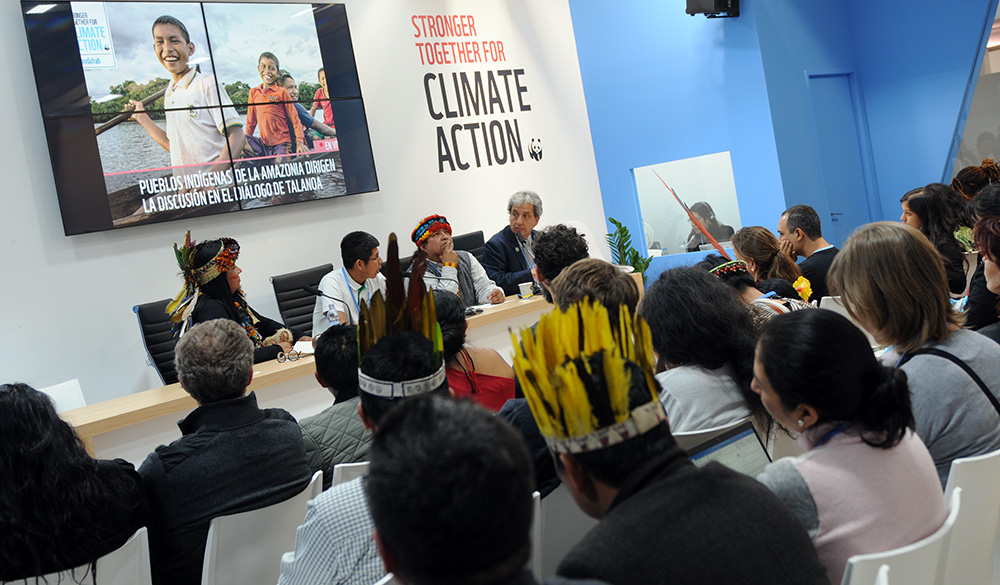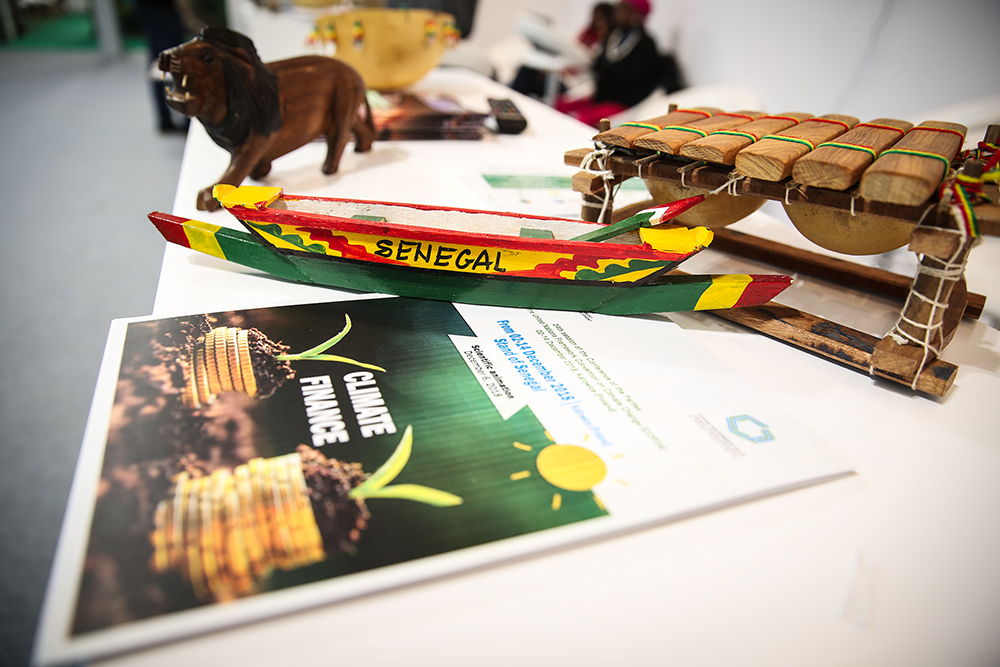Summary
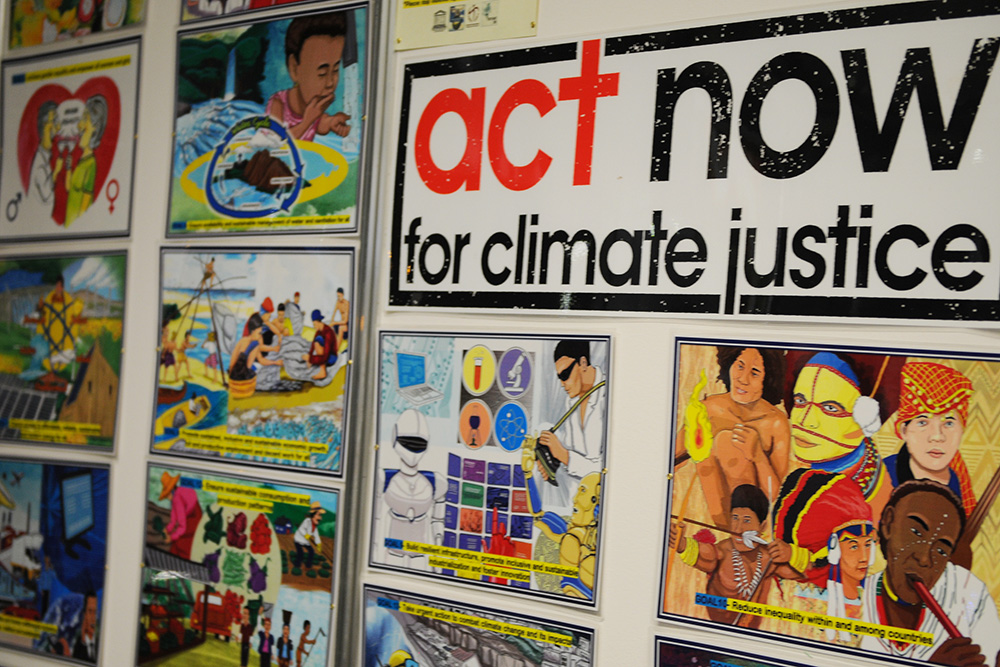
The following events were covered by IISD Reporting Services on Wednesday, 5 December 2018:
Photos by IISD/ENB | Natalia Mroz / Diego Noguera
For photo reprint permissions, please follow instructions at our Attribution Regulations for Meeting Photo Usage Page
Research and Development of Climate Change
Presented by the Government of Qatar
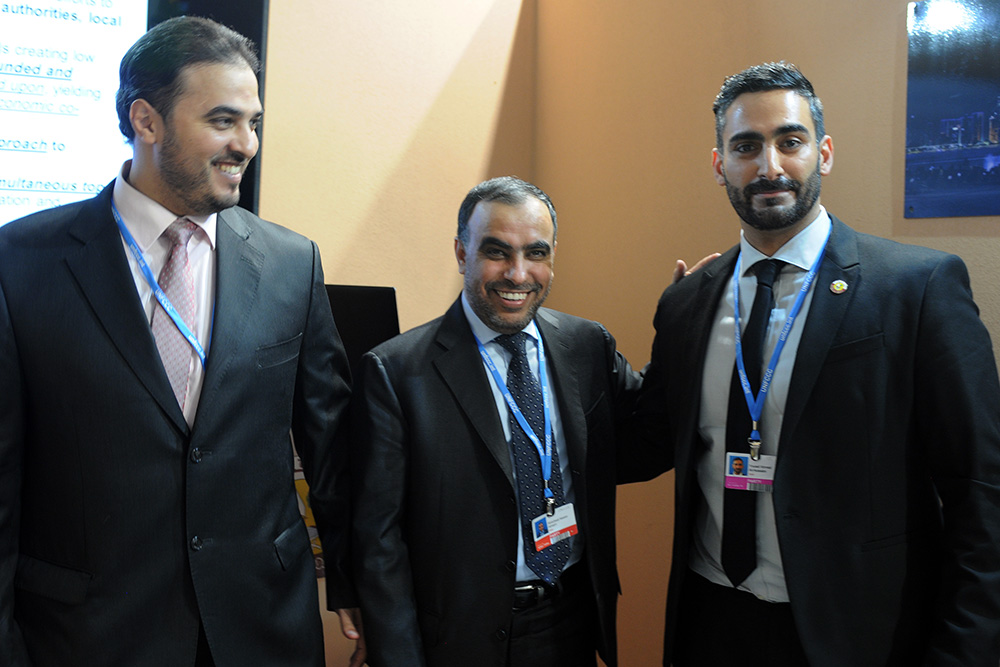
This event, hosted by Qatar’s Ministry of Municipality and Environment, addressed research related to water security, air quality and food security in Qatar.
Yousef Ahmad Al-Hussaini, Qatar, moderated the session. Huda Al-Sulaiti, Qatar Environment & Energy Research Institute (QEERI), spoke about climate change and water security in her country. She reported that recent findings have shown that, if water resources are properly managed, Qatar will not face a projected water deficit in 2050. She listed types of water resources available for agriculture, including desalinated seawater, groundwater that is now highly depleted, brackish water, and treated wastewater for irrigation. She also spoke about the additional risks to these limited resources posed by climate change. To address water scarcity, she highlighted that QEERI is engaging in research on adaptive technologies. Al-Sulaiti highlighted results from recent research on groundwater mapping for vulnerability assessments, noting that water deficits in the Middle East are related to both anthropogenic climate change and poor water management. She drew attention to the development of advanced materials for desalination and water treatment that are energy-efficient and cost-effective, including filtration membrane technology and new desalinization technology.
Mohammed Ayoub, QEERI and Hamad Bin Khalifa University, spoke on climate change impacts on meteorology and air quality in Qatar. He noted that QEERI focuses on building knowledge and developing capabilities in understanding and addressing air quality, and that the Institute also works on costing the impacts of air pollution Qatar. Highlighting that Qatar accounts for less than 0.3% of global greenhouse gas emissions but also that the country’s warming rate is 2.6 times the global average, he drew attention to the decreasing atmospheric moisture content as a result of climate change, particularly between March and July. Commenting on unusually high rainfall in June 2018, he highlighted the heat island effect experienced in Doha with heavier rainfall experienced in the city. He also spoke about the current increase in sand and dust storm events over the past decade, and further highlighted the trend of increasing aerosol optical thickness.
Masoud Jaralla Al Marri, Executive Secretary, Food Security Committee, Qatar, spoke on the country’s food security initiatives, highlighting that water scarcity and air pollution related to climate change negatively affect the country’s agricultural production. Acknowledging that Qatar’s climate is not conducive to food production due to depleted water aquifers, he stressed that this makes the country one of the most vulnerable to climate change. He underscored a significant drop in agricultural production due to heat stress and decreased water availability and pointed to the fact that the country imports over 90% of its food and beverages. Outlining the country’s food security initiatives, he noted that Qatar is currently working to reduce water use in irrigation and has also adopted modern climate- and computer-controlled food production systems. He further highlighted that Qatar is focusing on local production only for the most essential commodities (such as dairy and poultry), and is building strategic storage reserves of other commodities to reduce climate vulnerability. To achieve this, he explained, the country is working with a diverse range of international trade partners to meet national demand.
Ho Chin Siong, University of Technology, Malaysia, spoke on transforming to a low carbon society and how to move from science to action. Noting that cities are both a challenge and a solution when it comes to climate change, he reported that his university has published extensively on low carbon societies, based on test cases in Malaysia. On translating science to action, he stressed the need to decouple economic growth from increasing carbon emissions, and described the cycle of science, policymaking and action. He underscored the need for pro-poor, pro-job, pro-environment and pro-growth development. Siong then discussed low carbon strategies for the region of Iskander Malaysia, which integrates both spatial and non-spatial planning tools to achieve a green economy community.
In the ensuing discussion, participants addressed: the effect of new technologies on climate change; the need for energy-efficient technologies to address water scarcity; the need for landscaping to cover Qatar with vegetation to address sand and dust storms; the need to ensure recycled water does not negatively impact human health; and the need to engage communities in the shift to low carbon development.
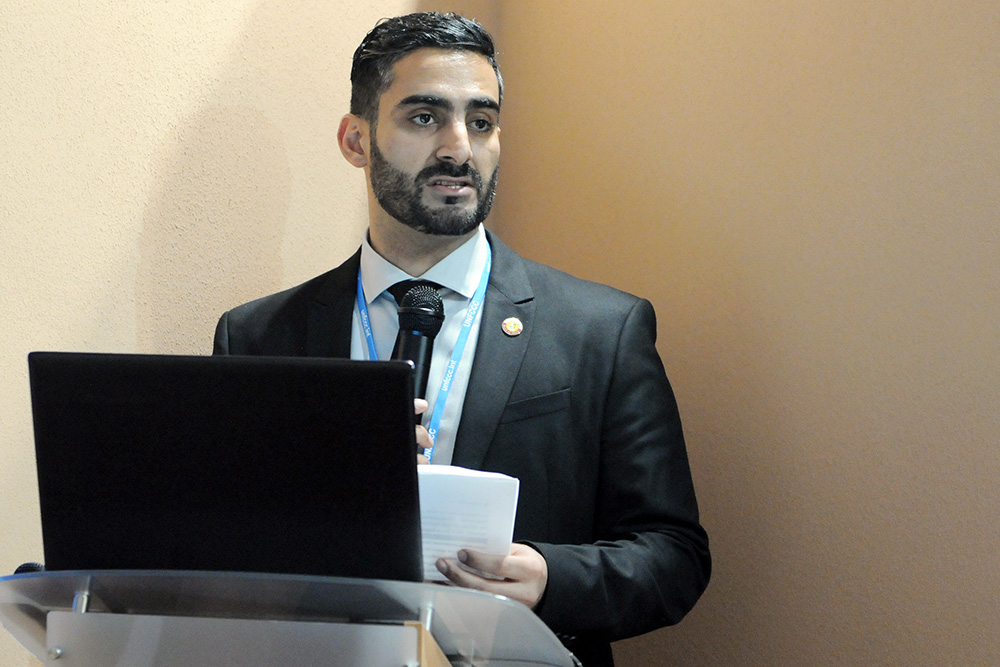
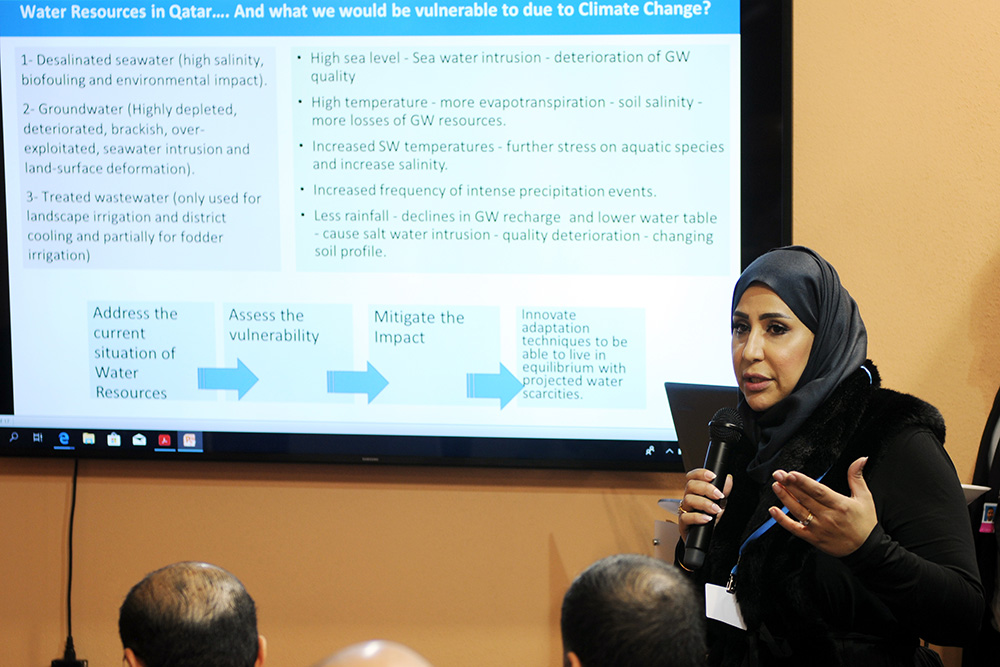
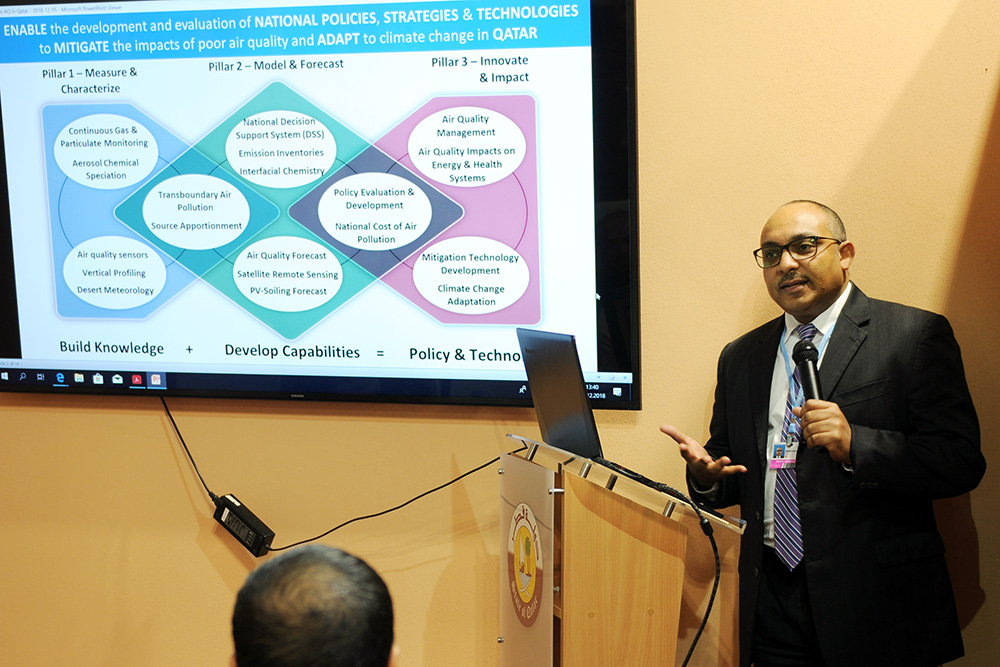
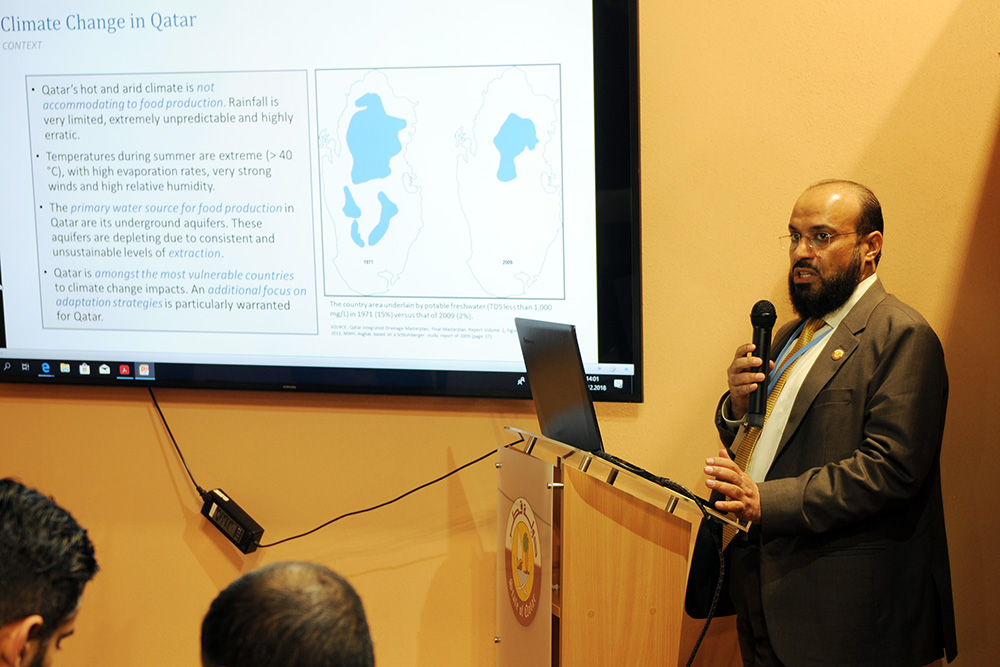
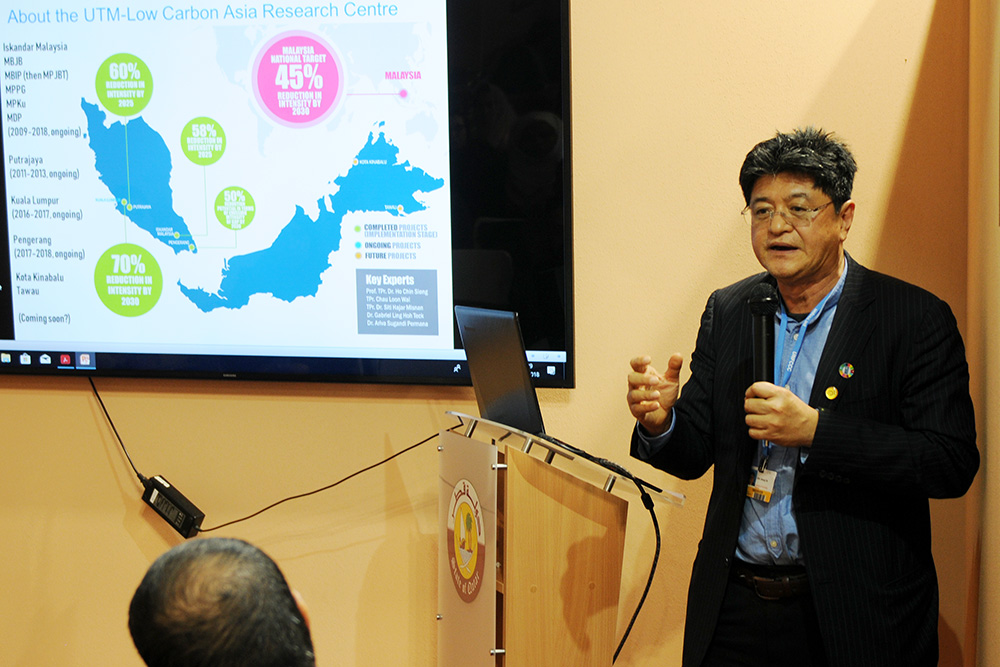
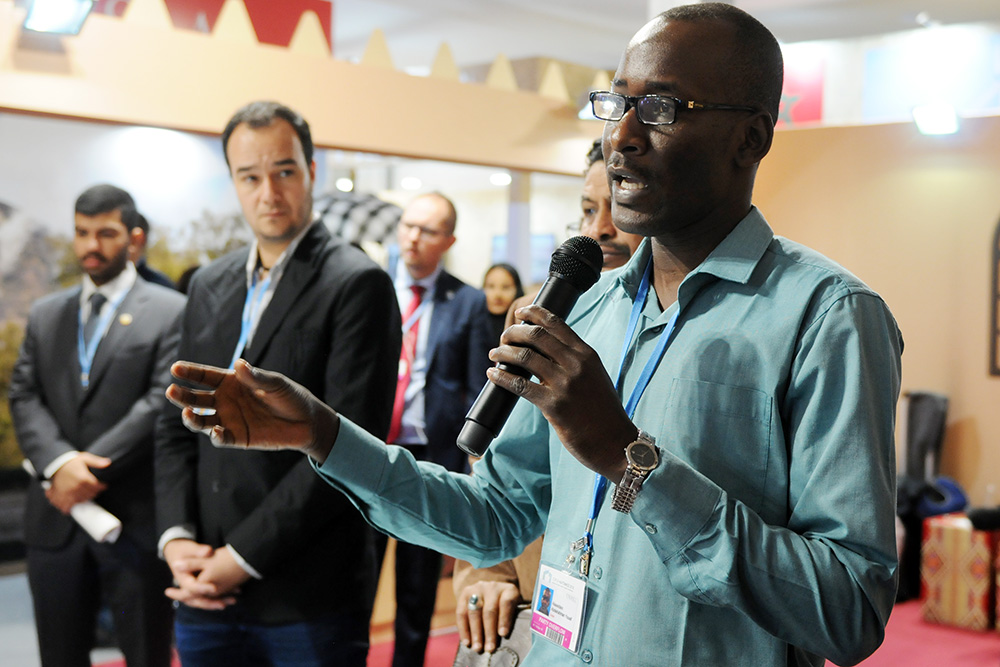
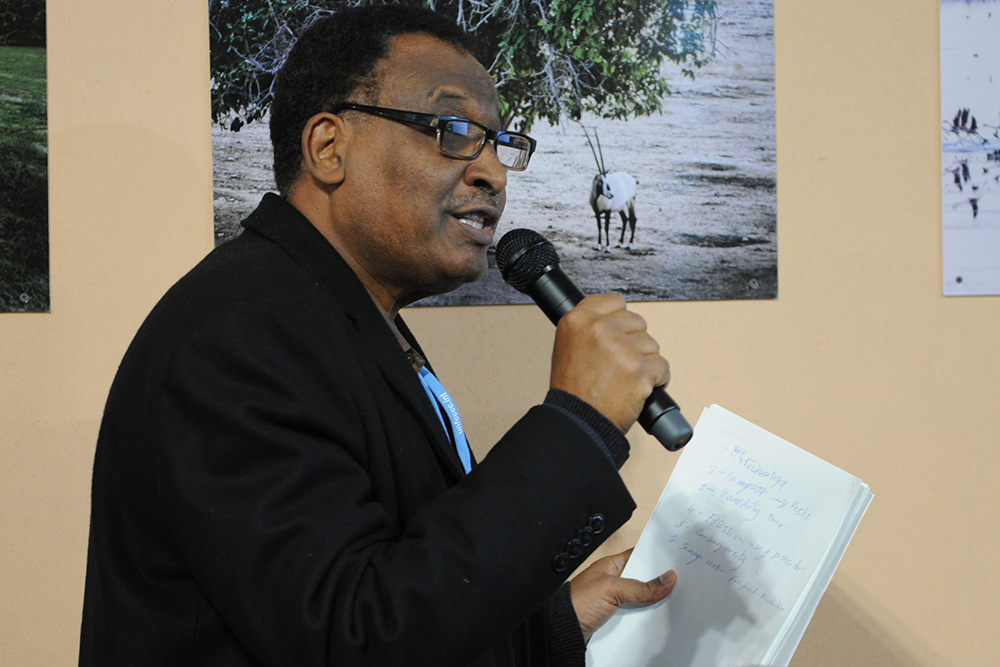
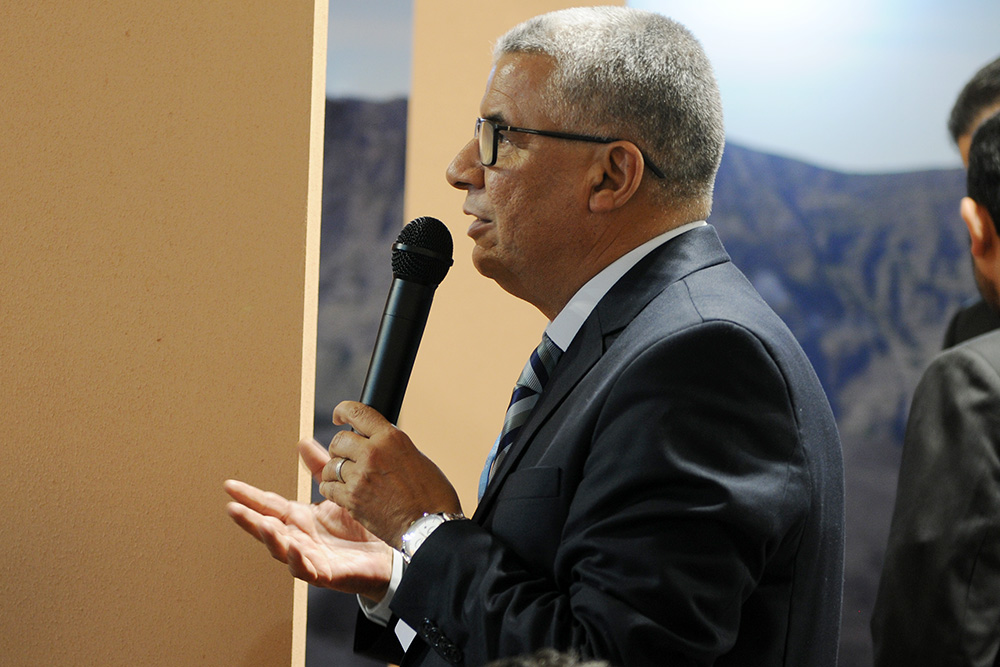
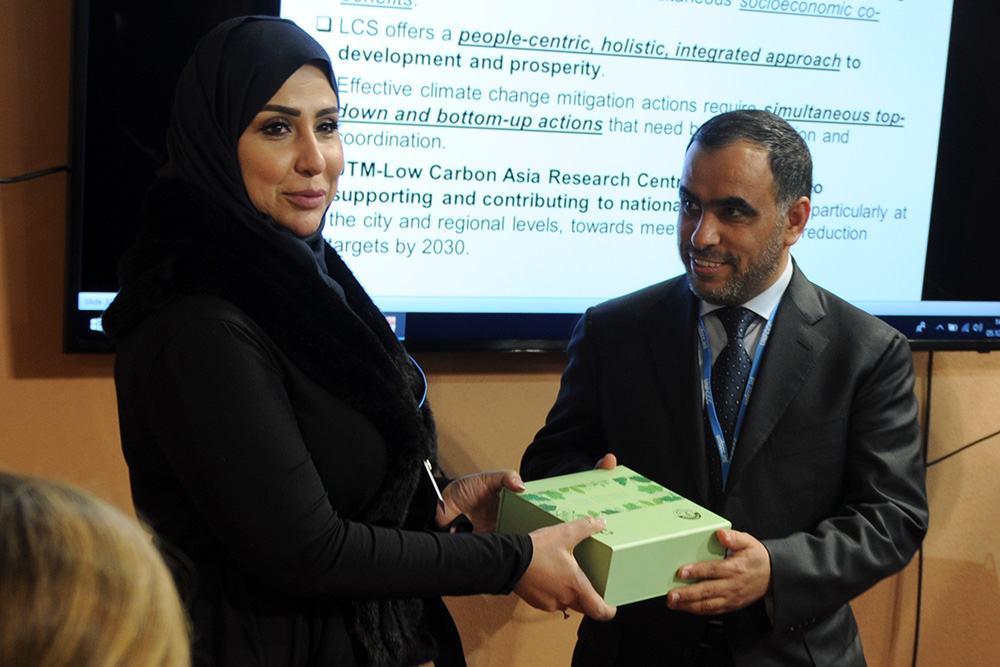
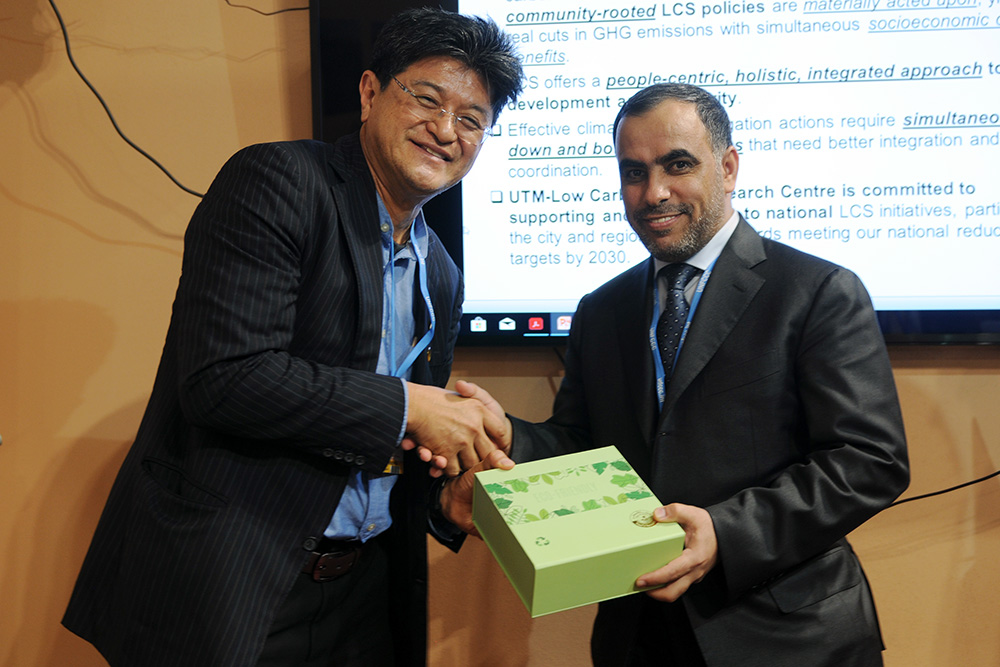
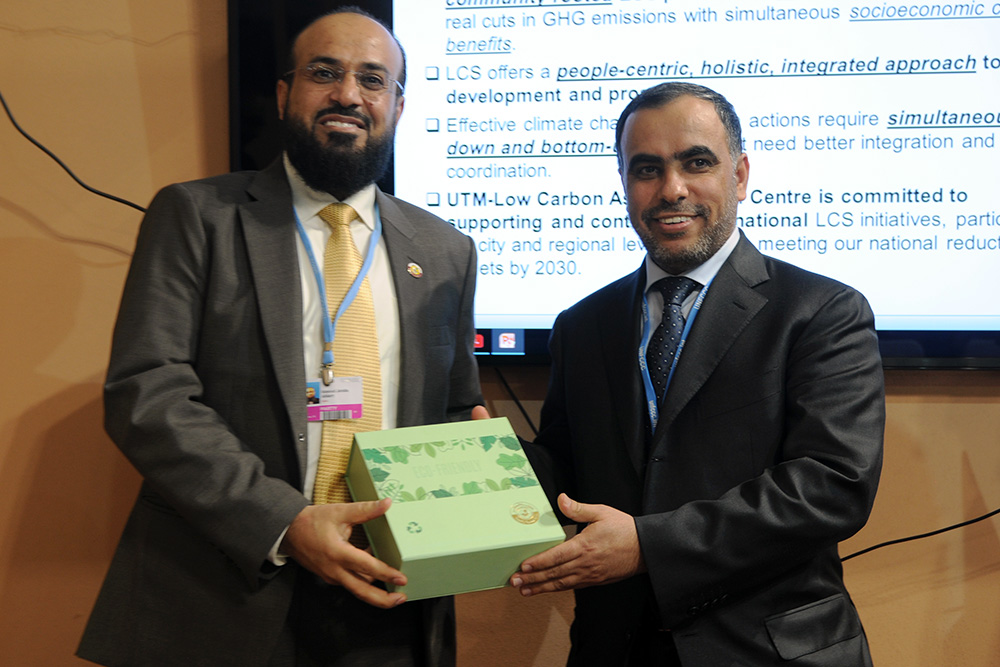
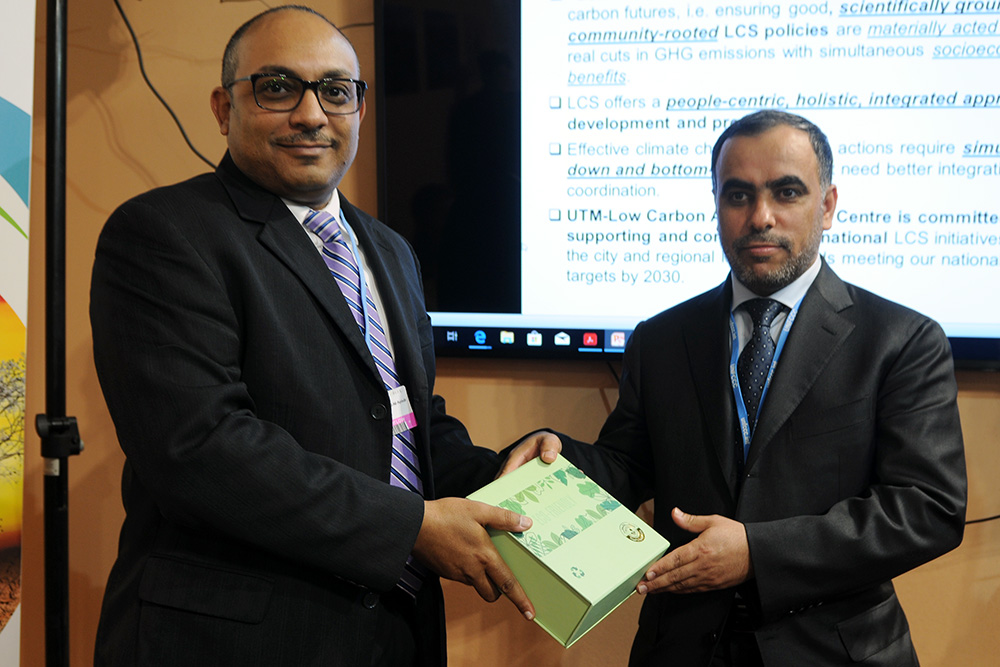
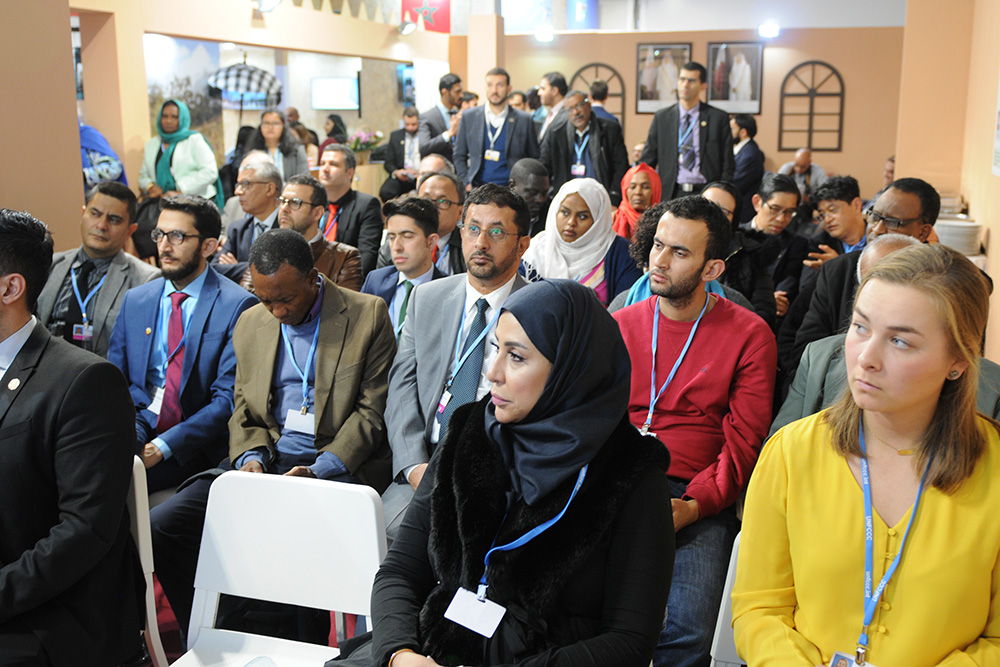
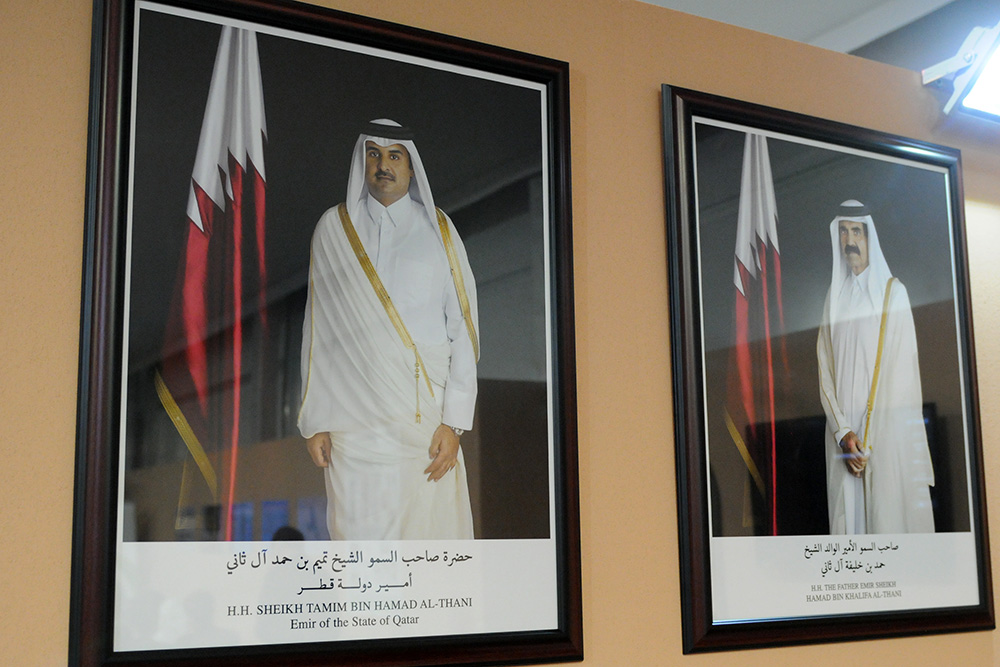
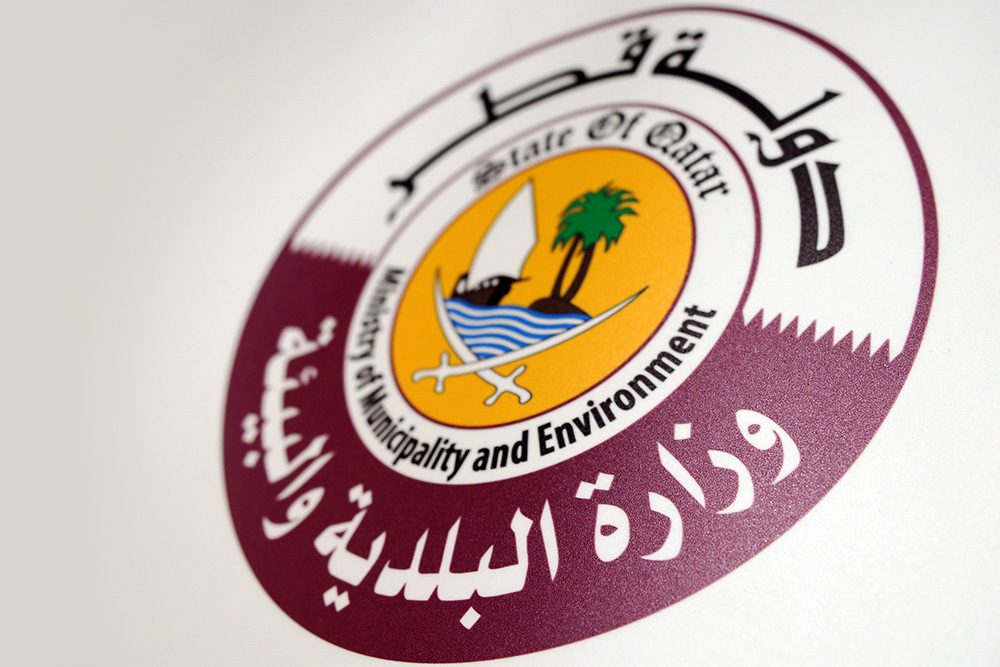
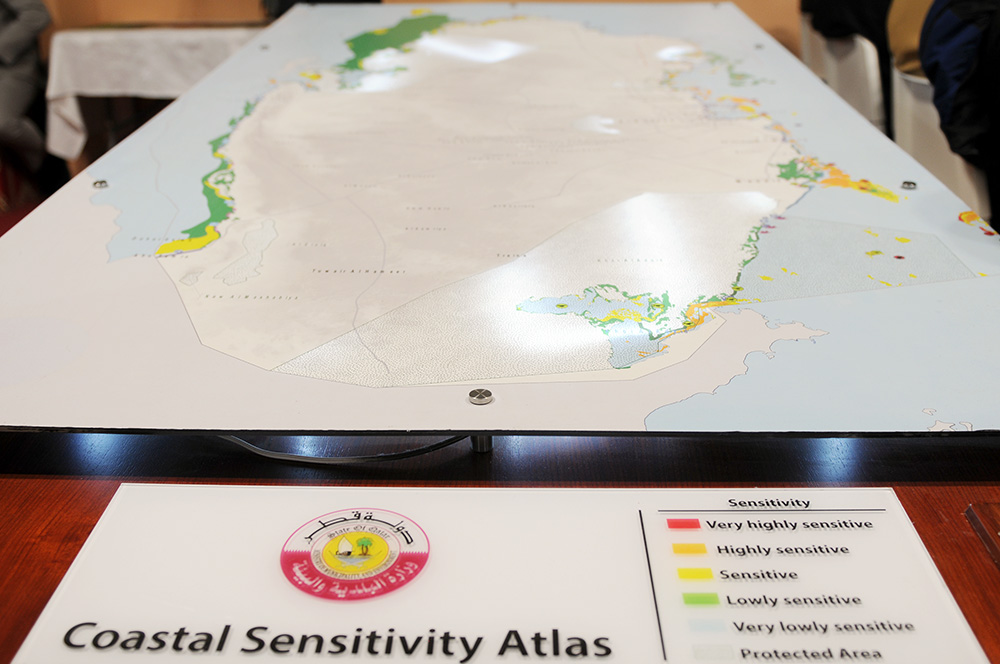
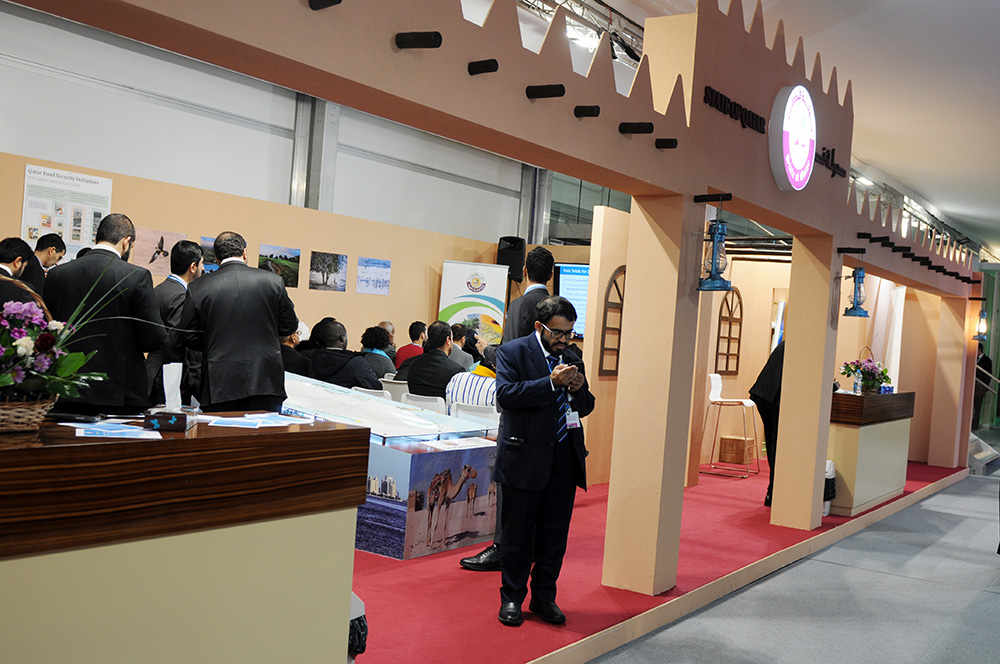
The Importance of Agriculture in the NDC-P: Current and Future Activities of the TWG
Presented by the Food and Agriculture Organization of the UN (FAO)
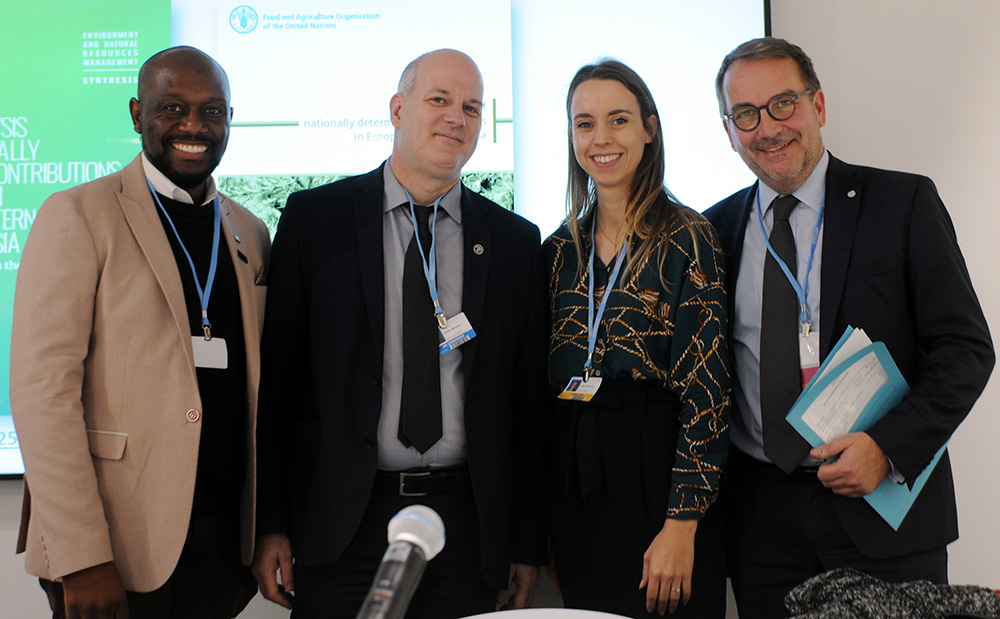
This panel presented case studies from the Thematic Working Group (TWG) on Agriculture, Food Security and Land Use of the FAO, which works to facilitate the implementation of nationally determined contributions (NDCs) in the agriculture sector. The TWG is a forum for countries and organizations to exchange experiences around food security and agriculture to overcome sector-specific barriers to agricultural adaptation. The event was moderated by Martial Bernoux, FAO.
Desire Nemashakwe, Green Impact Trust, described his organization’s work in Zimbabwe to promote climate smart agriculture (CSA) techniques. In particular, he highlighted the Trust’s CSA Manual, which has been mainstreamed across public schools in Zimbabwe. He also discussed the Students Agricultural Innovation and Development (SAID) programme, which aims to connect colleges and communities to create student-led CSA interventions to address community needs. Nemashakwe underlined the challenges of technology transfer to promote climate change adaptation in agriculture, including: limited extension services; high capital costs; and the need to develop gender-sensitive technologies. He concluded by outlining Green Impact Trust’s priorities for Zimbabwean agriculture, which center around the development of CSA “centers of excellence” matched to each of Zimbabwe’s five agricultural zones, building capacity among farmers, and focusing on research and development into agricultural techniques.
Leslie Debornes, Consumer Unity & Trust Society (CUTS) International, described her organization’s PACT East African Community project, which stands at the nexus of climate change, food security, agriculture and trade. She highlighted that, through the project, CUTS has organized workshops which aim to help climate negotiators appreciate the importance of including agriculture in high-level dialogue, as well as develop shared positions to bring to the negotiations table. She said the project aims to share knowledge and build stakeholder capacity to promote coherent strategies at the international, national and regional levels. Debornes stressed that stakeholder engagement is critical to CUTS’ work, and that most of the organizations’ activities are developed on demand, stemming from frequent networking events and regular exchanges with agricultural stakeholders. Debornes concluded that, while a need exists to support stakeholder participation in UN Framework Convention on Climate Change (UNFCCC) negotiations, it is equally necessary for them to be empowered to influence appropriate decisions at the national and regional levels.
Frank Fass-Metz, Federal Ministry of Economic Cooperation and Development (BMZ), Germany, described Germany’s role as a provider of climate financing, emphasizing that climate change and food security are key international aid issues for the future. He underlined the importance of identifying the impacts of climate change on agriculture and food security, stressing that agriculture developments must be considered in light of future climate change impacts. In conclusion, he raised the example of BMZ’s support of knowledge-sharing regarding livestock research, which is essential to furthering both mitigation and adaptation efforts.
Martin Frick, UNFCCC, stressed that, while the agriculture sector needs the support of the international climate regime, the climate regime equally needs the support of agriculture to develop effective policies. Stressing that the successful implementation of NDCs is “where the rubber hits the road,” he explained that climate negotiators were initially reluctant to include agriculture in negotiations, lest it unfairly increase the mitigation burden in the Global South. He stressed the importance of success stories of on-the-ground adaptation to build developing countries’ trust in a global climate regime. He also discussed the broader co-benefits of agricultural adaptation to climate change, including: rural development, disaster risk reduction, gender equality, greenhouse gas mitigation and water security, which can all emerge from adequate adaptation schemes. Frick also praised the private sector’s increased responsible investment in farmers, which provide the financial security by which adaptation can occur.
In the ensuing discussion, participants considered: FAO support in African states; the role of smallholder farmers; other possible areas of intervention regarding livestock; and private sector interventions. In response to a question about smallholder farmers in the Global South, participants raised the need for smallholder farmers to be organized to interact with different market mechanisms.
Bernoux highlighted a series of regional analyses on NDC implementation published by the TWG on Agriculture, Food Security and Land Use of the FAO, that are now publicly available. In closing, Frick urged that in creating successful agricultural adaptations, NDCs need to be implemented in the style of the Sustainable Development Goals, “leaving no one behind.”
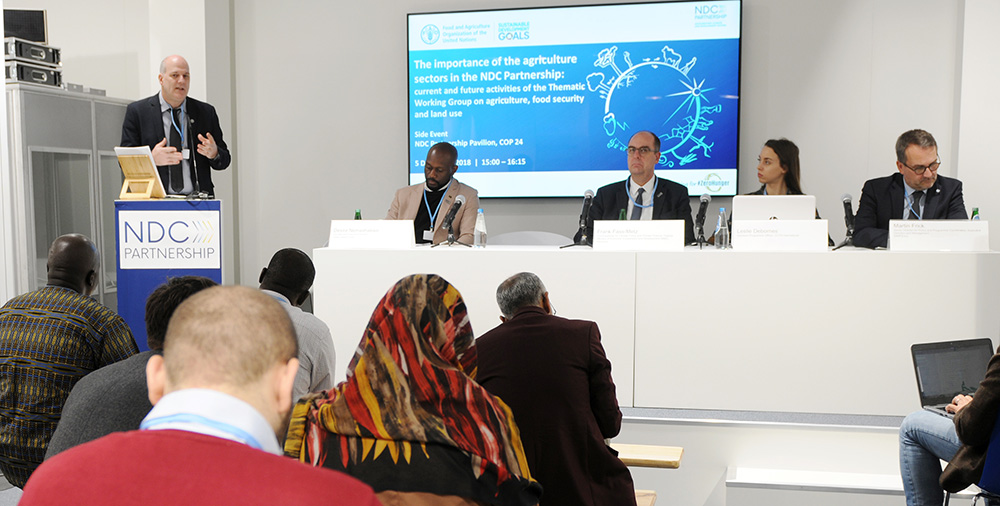
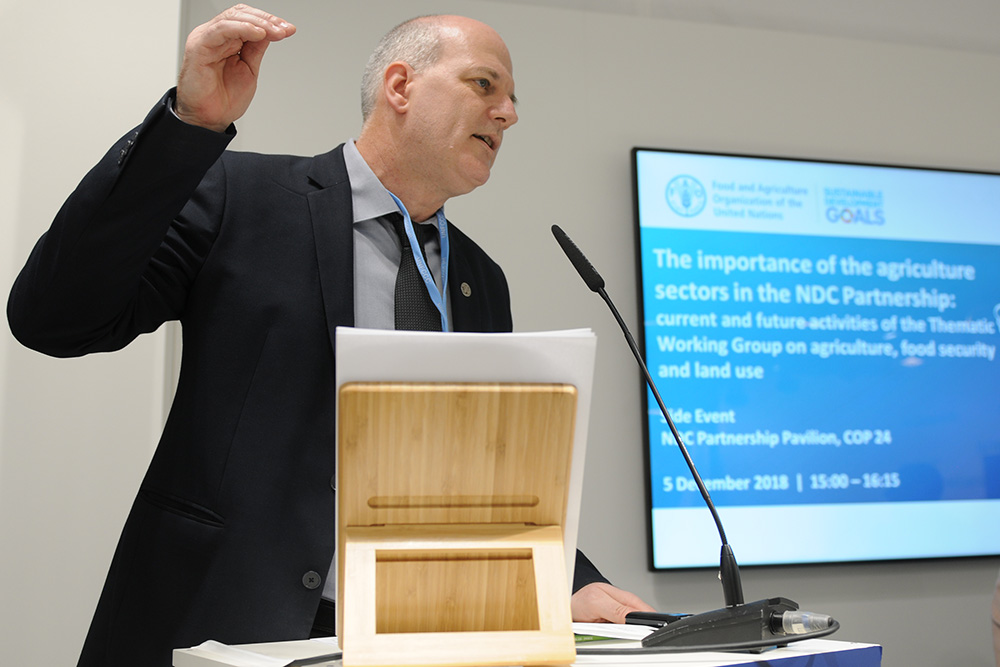
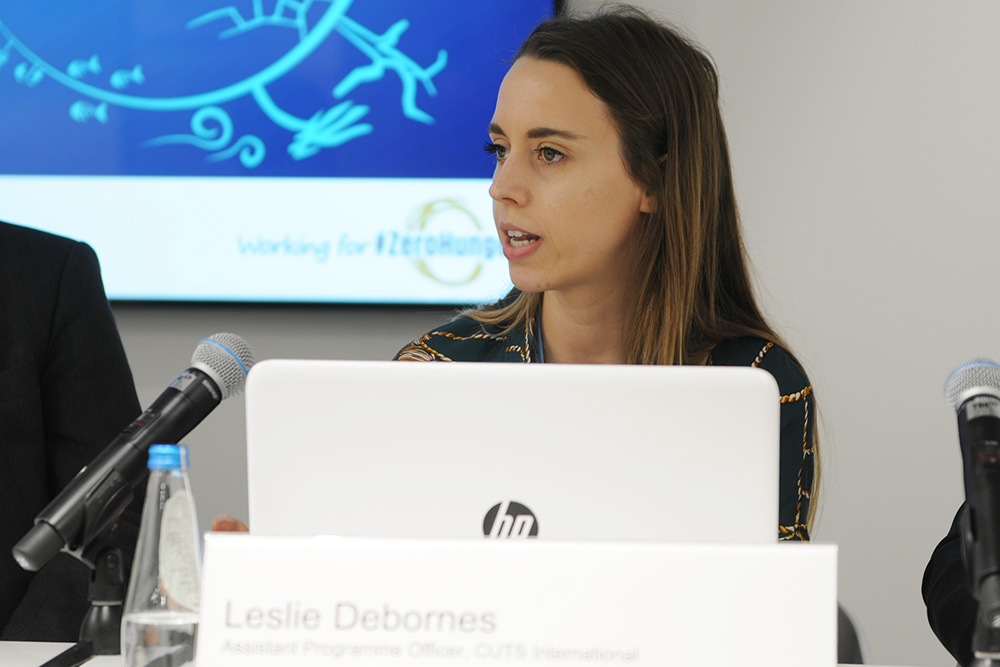
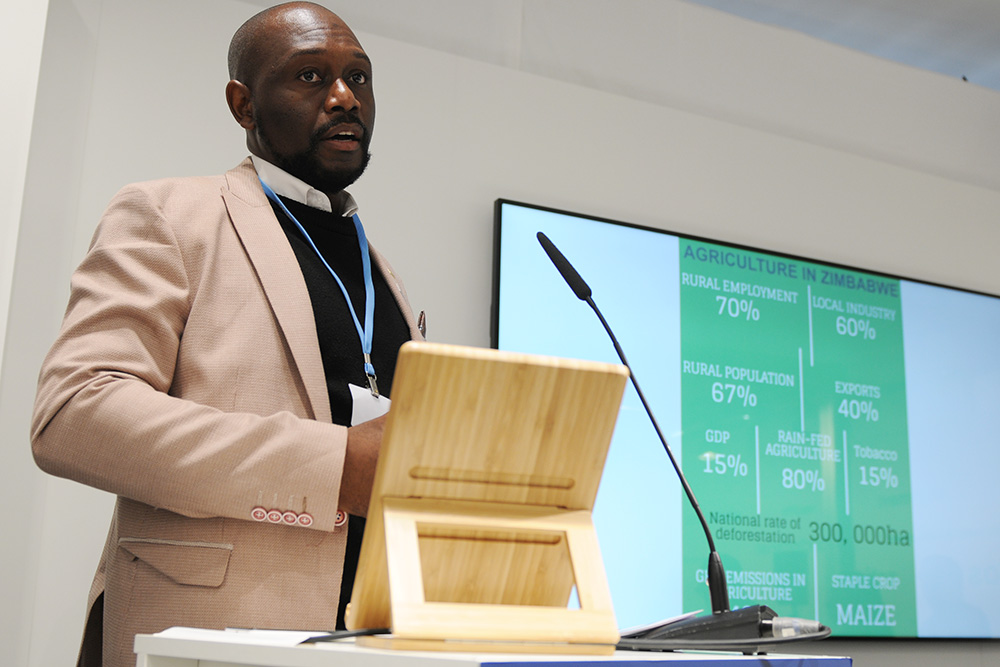
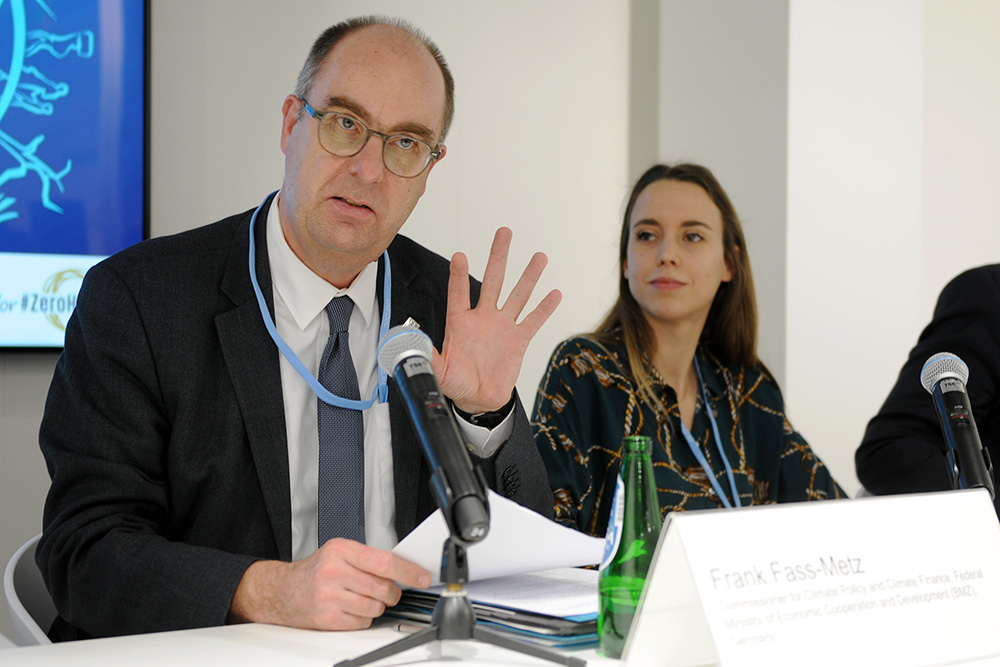
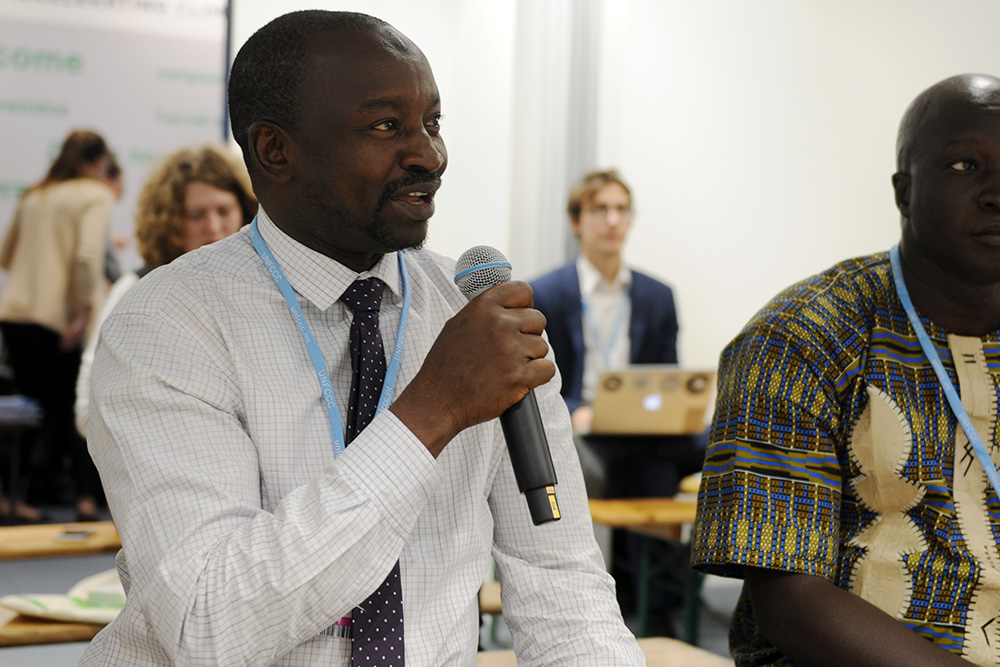
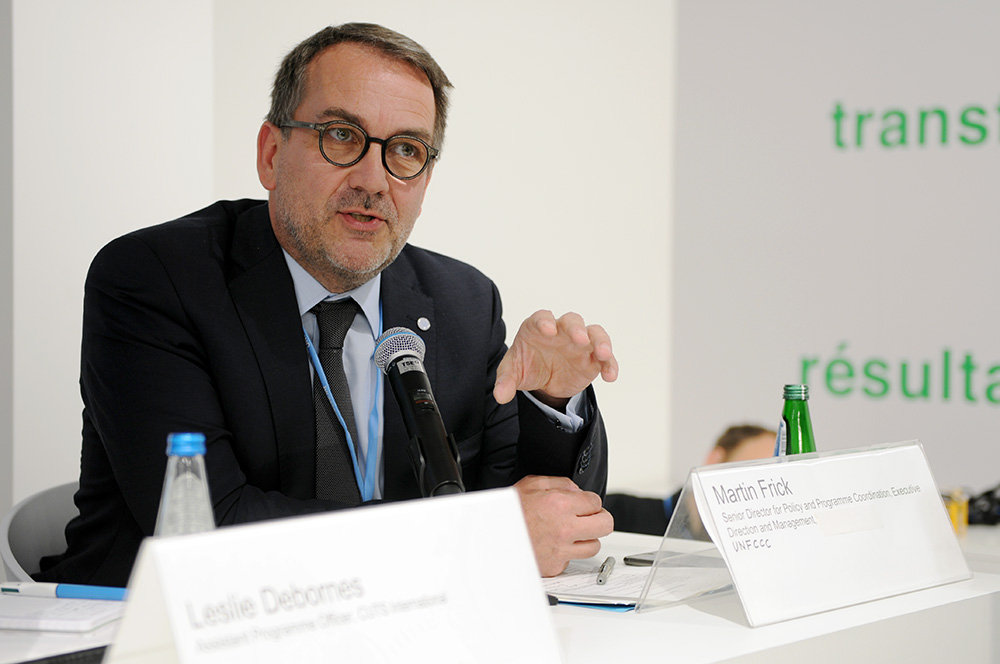
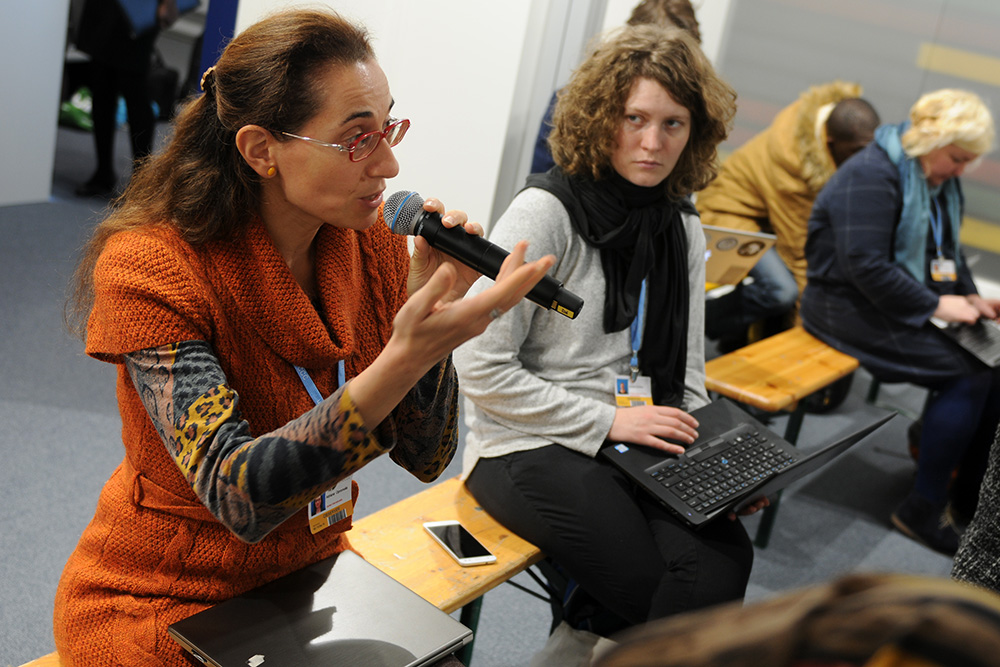
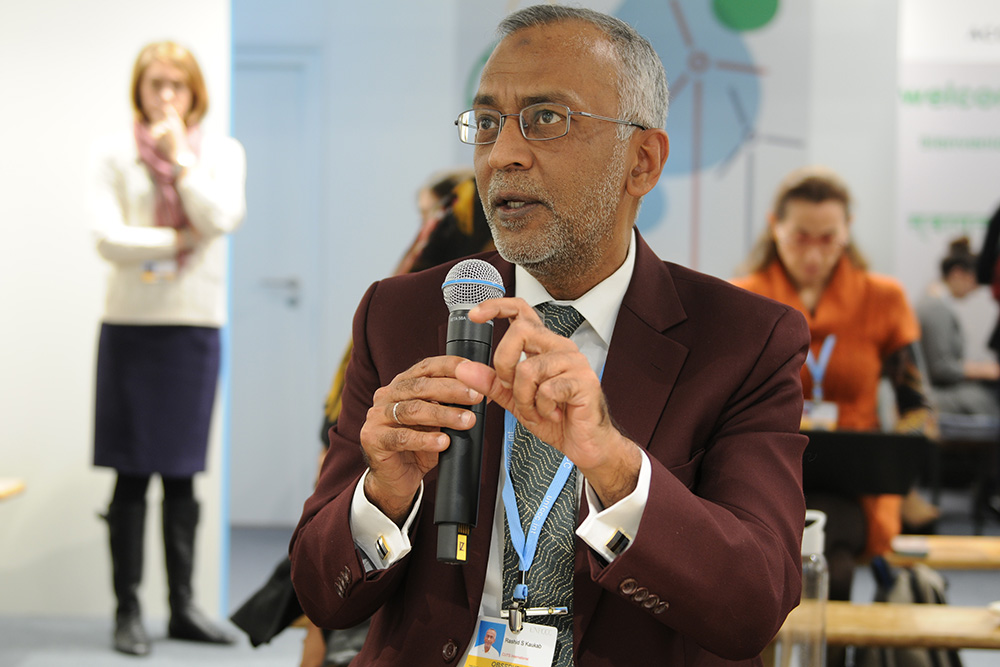
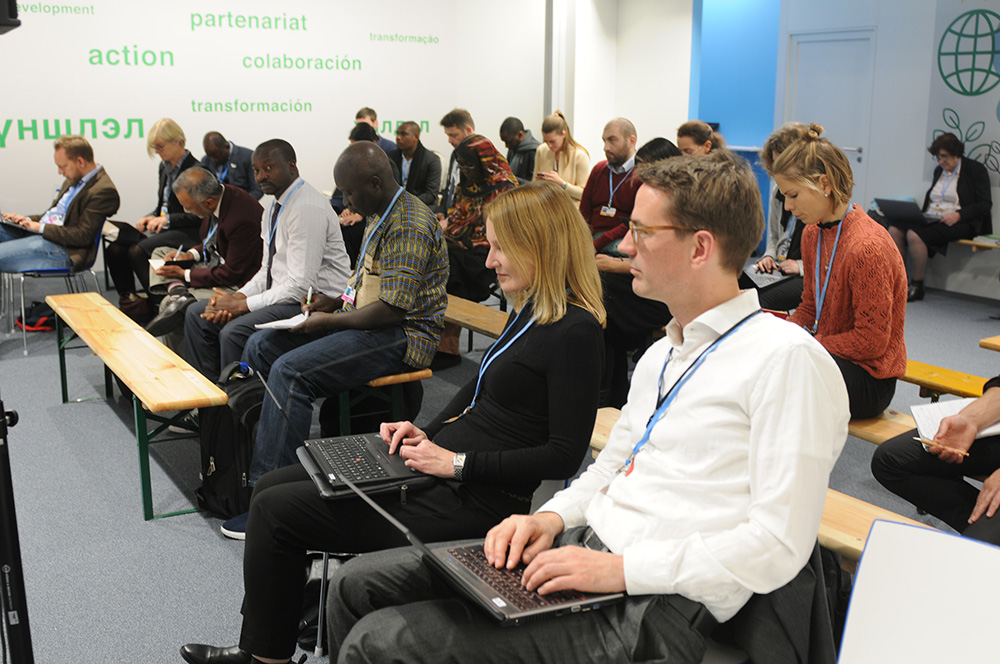
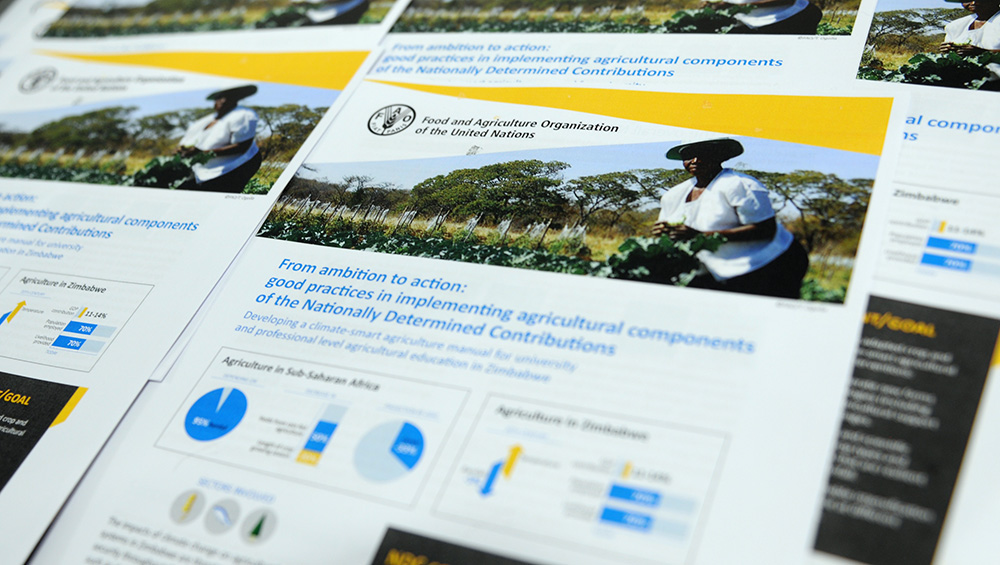
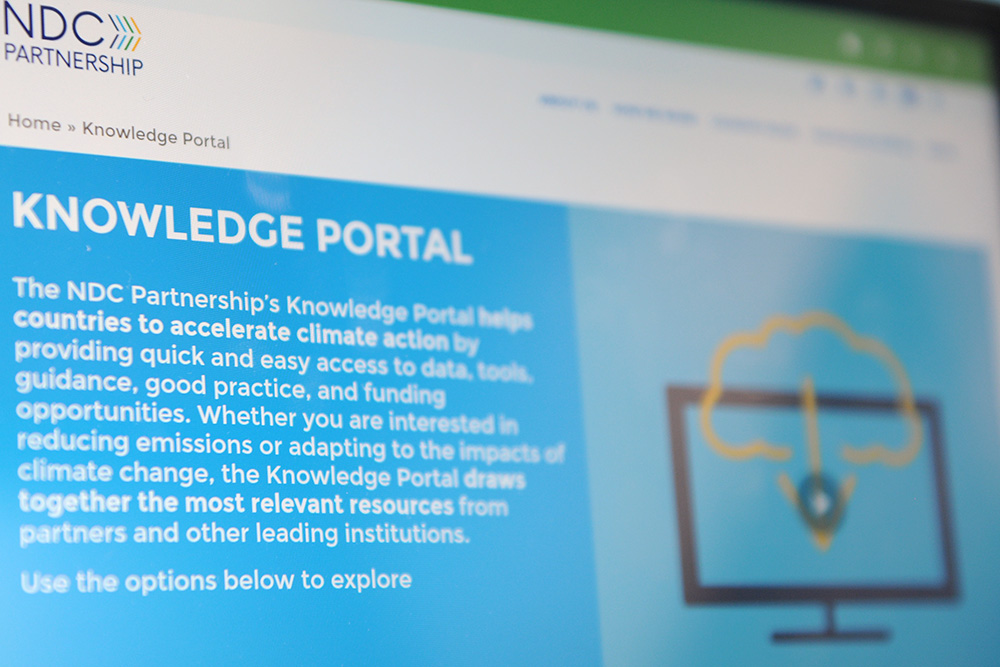

Black Soils for Food Security and Climate Change Adaptation and Mitigation
Presented by the Food and Agriculture Organization of the UN (FAO) in collaboration with the Ministry of Agriculture and Rural Development of Poland and the Institute of Soil Science and Plant Cultivation (IUNG)
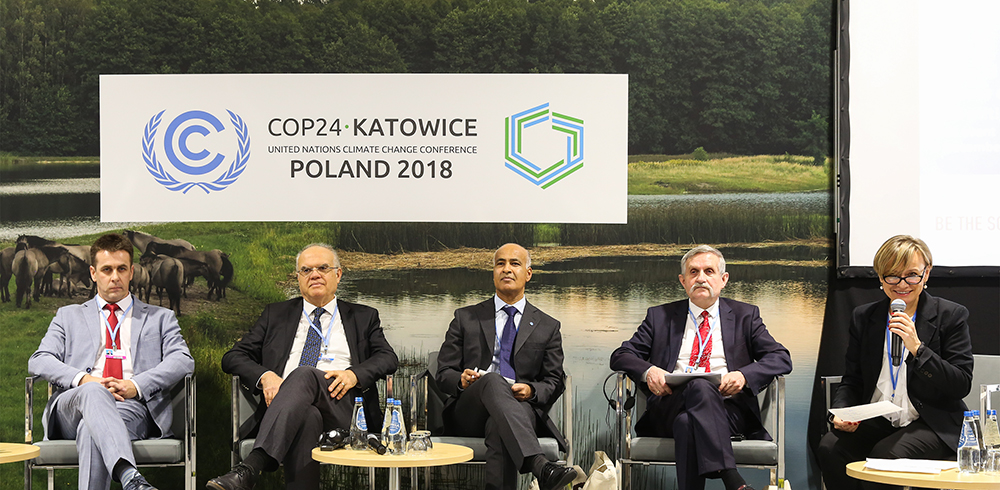
This side event aimed to raise awareness on the importance of black soils for food security and climate change adaptation and mitigation. Participants discussed the importance of sustainable management of black soils as a concrete action towards avoiding and reducing greenhouse gas (GHG) emissions. Malgorzata Buszko-Briggs, Forestry Department, FAO, moderated the event.
Karol Krajewski, Ministry of Agriculture and Rural Development, Poland, stated that farming generates a significant amount of GHG emissions and that the protection of black soils is related not only to climate change mitigation but to food security as well. Heemphasized the importance of accumulating carbon in the soil and highlighted that only about 25% of Poland's soils are characterized as black soils. He reported that his ministry has developed a strategy for better preservation of soils in Poland, and stressed the need to align this strategy with European agricultural policies to ensure black soils are appreciated for their ability to improve water retention.
Zitouni Ould-Dada, FAO, said that the general public has limited knowledge regarding soils and stressed that they are important to ensure food security, and the provision of medicine, clean water and carbon sequestration. He noted that a third of global soils are degraded due to poor soil management practices in agriculture that result in reduced soil organic carbon content. He stated that education and awareness raising can help maintain healthy soils, and thus ensure food security, and that sustainable management of soils can contribute to meeting the objectives of the Paris Agreement and the Sustainbable Development Goals.
Olcay Ünver, FAO, stressed that soils provide the means for food production for rural families and support the maintenance of ecosystem functions and services. He reported that the majority of black soils are located in the Northern Hemisphere, and noted ongoing research on ways to enhance the productivity of black soils, while protecting them from the impacts of climate change. He highlighted that the FAO’s global soil partnership is developing voluntary guidelines on sustainable soil management.
Grzegorz Siebielec, IUNG, cautioned against overestimating the capacity of soils to sequester carbon. He reported that organic carbon content is a basic indicator of soil quality and affects its capacity to retain water and combat soil erosion. He said that risks related to the decline of soil carbon include release of carbon dioxide, nutrient leaching and biodiversity loss. He noted that IUNG monitoring programmes look at trends of soil carbon and properties in different regions in Poland, and urged the sharing of soil databases between organizations.
Budi Wardhana, Indonesian Peatland Restoration Agency, said that 80% of Indonesia’s peatlands have been degraded due to agriculture and called for peatland restoration. He highlighted the need to provide alternative livelihood options to farmers, including fisheries and poultry production, to address sustainable management of peatlands.
Tekini Nakidakida, Fiji, noted that many island states do not have much soil due to the high amount of sand, which poses a major challenge to agriculture-based food security. He suggested that incorporating compost would enable cultivation of legumes, and discussed the Kronivia Joint Work on Agriculture, which addresses soil health and fertility on the island.
Maya Hunt, New Zealand, reported that farmers in New Zealand are committed to protecting black soil carbon in their fields. She highlighted challenges related to the measurement of the anthropogenic effect on soil organic carbon and the rate of carbon change in the soil. She concluded that the development of simple incentives and education campaigns and policies can encourage real change on the ground.
Wiesław Oleszek, General Director, IUNG, said that IUNG has 60,000 sample points across Poland and 10,000 soil profiles that compare carbon concentrations between current and previous years. He said that the Institute is collaborating with European universities, which provide new tools and software and exchange databases on soil carbon content.
In the ensuing discussion, panelists answered questions on the importance of early school education on the benefits of soil and peatlands, emphasizing that children need to interact with farmers at an early age. Panelists also noted that peatlands may store 100 times more carbon than other soils and, as a result, potentially release much more into the atmosphere.
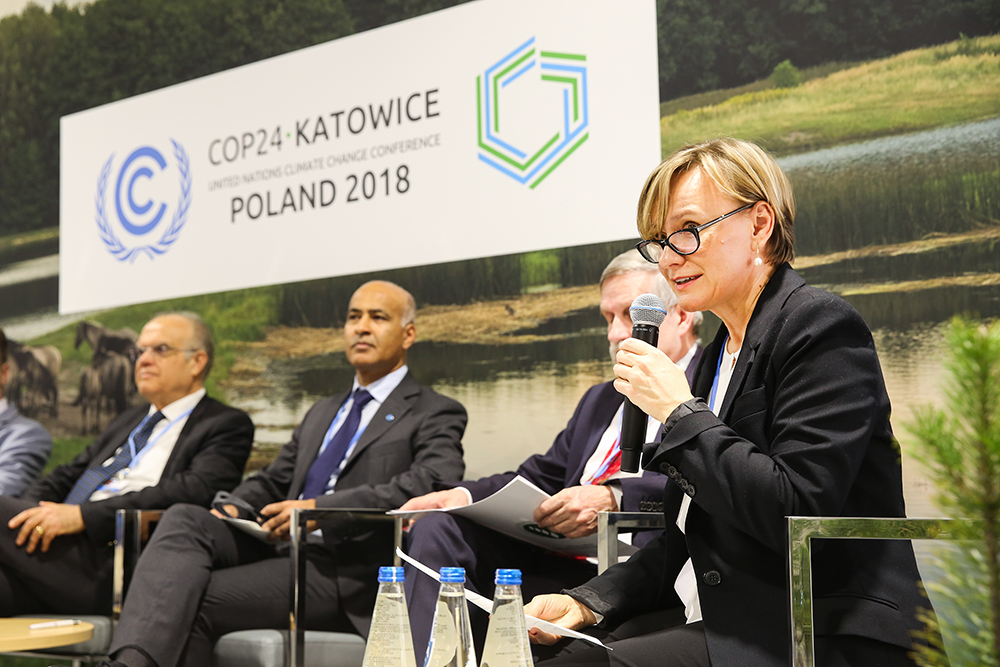
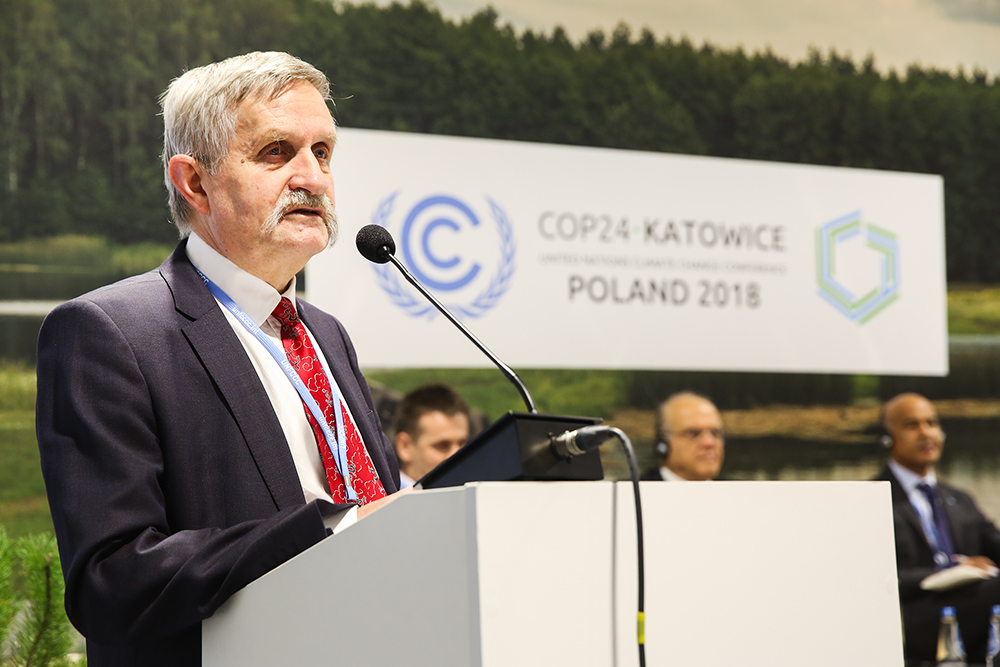
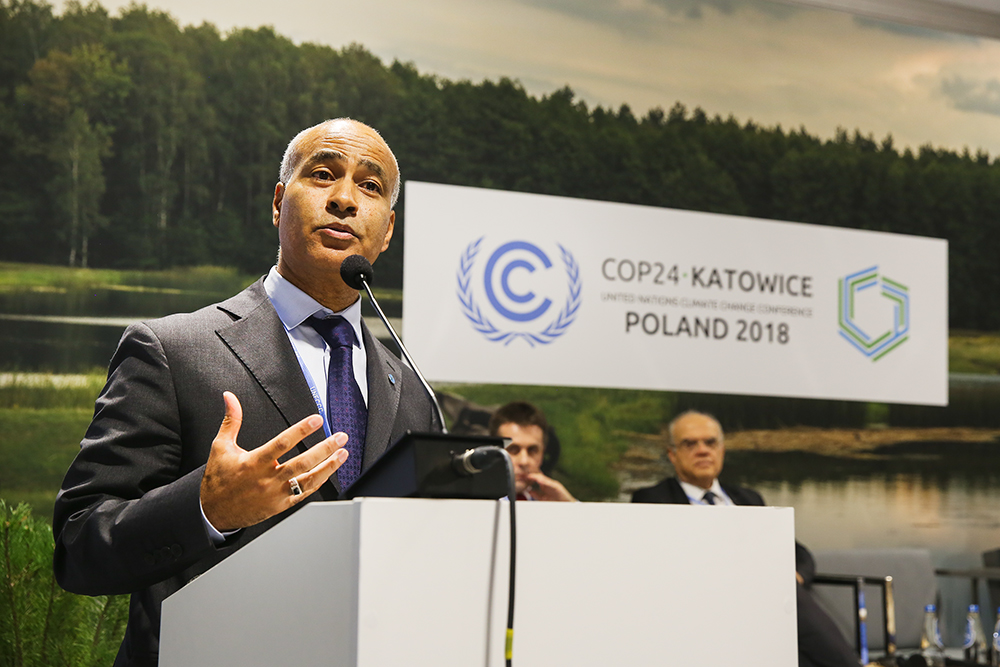
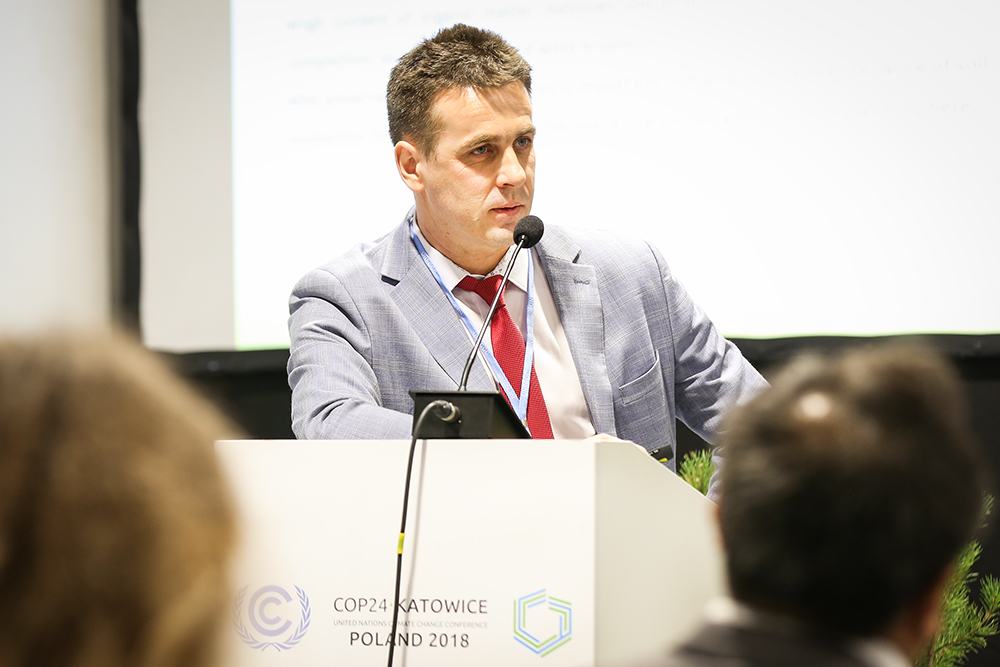
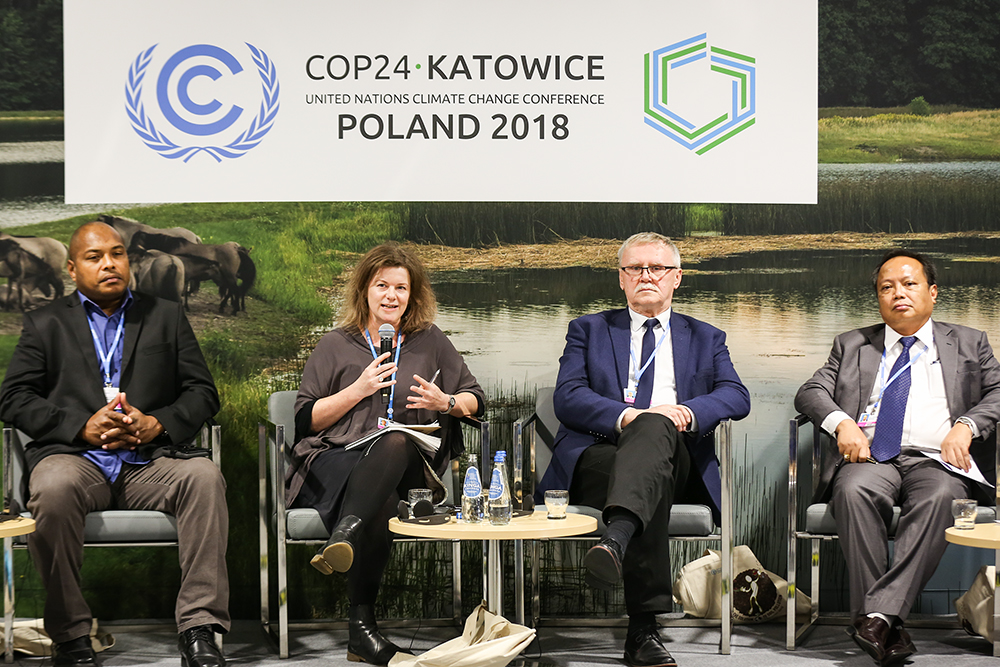
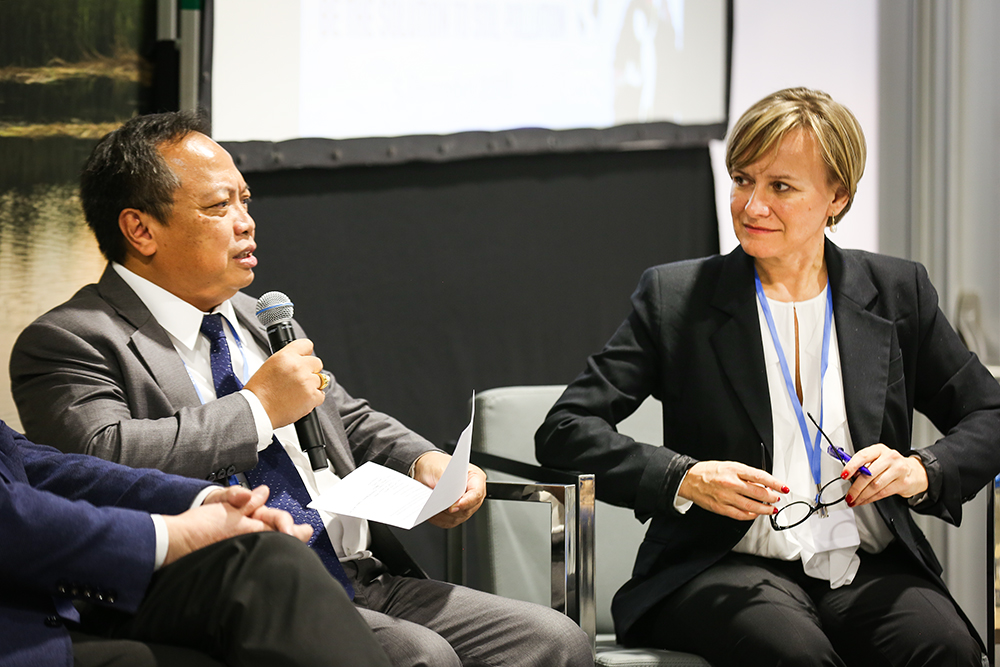
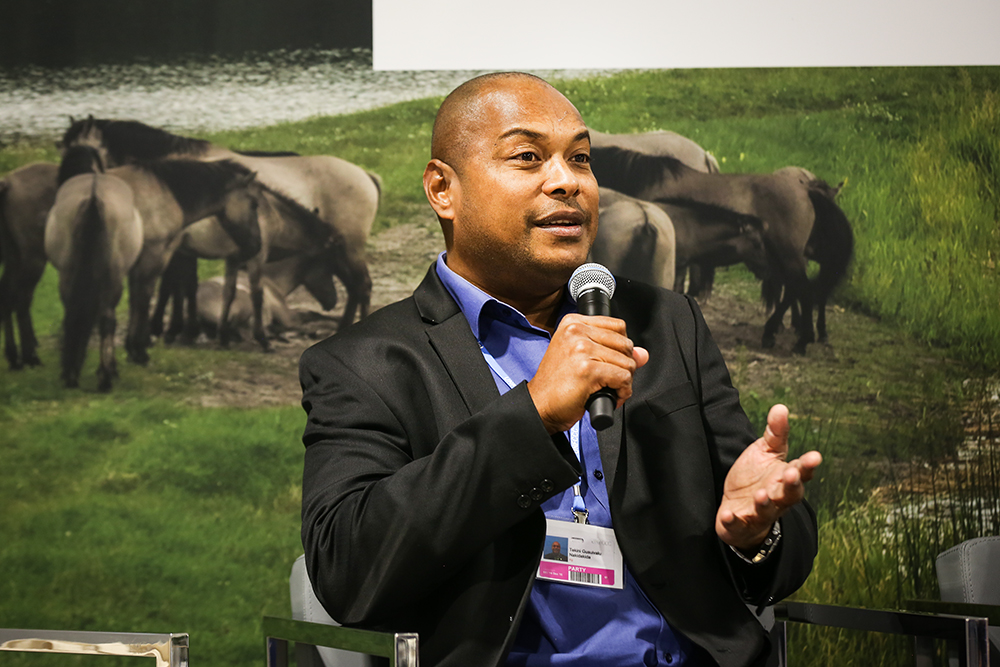
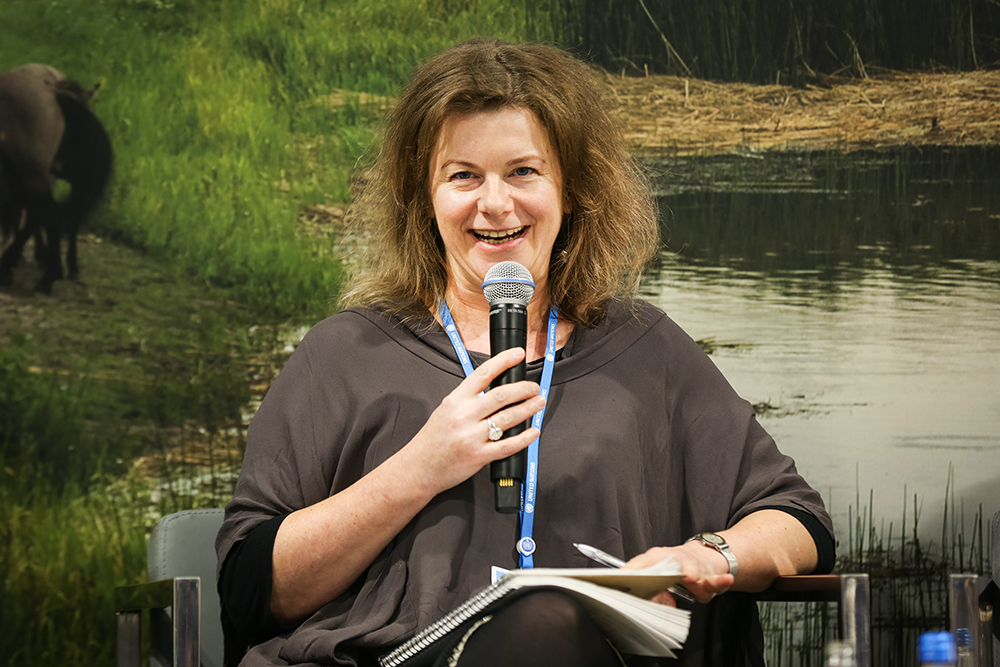
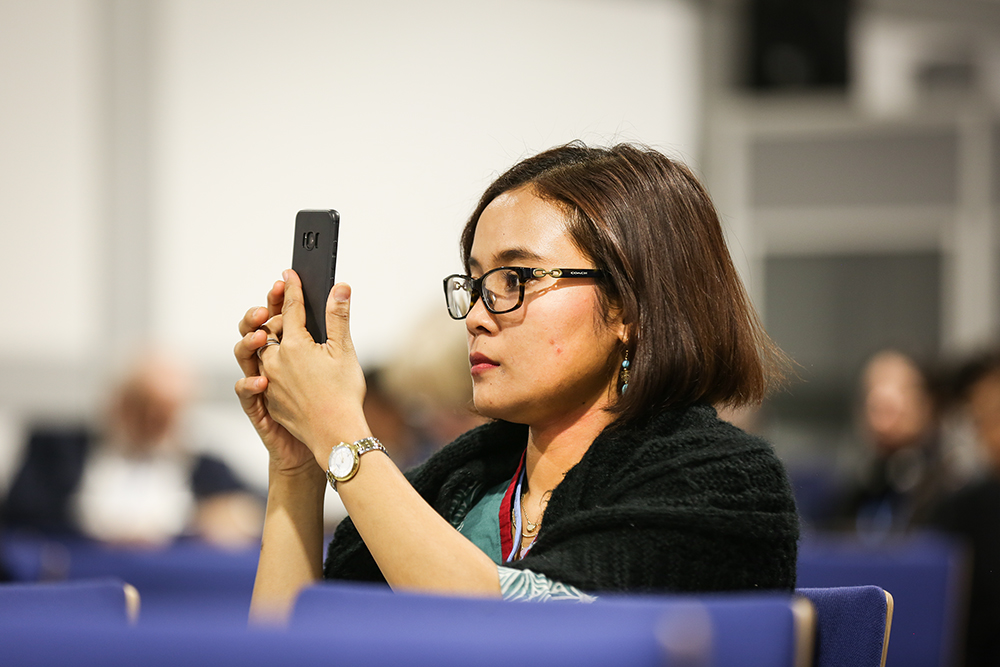
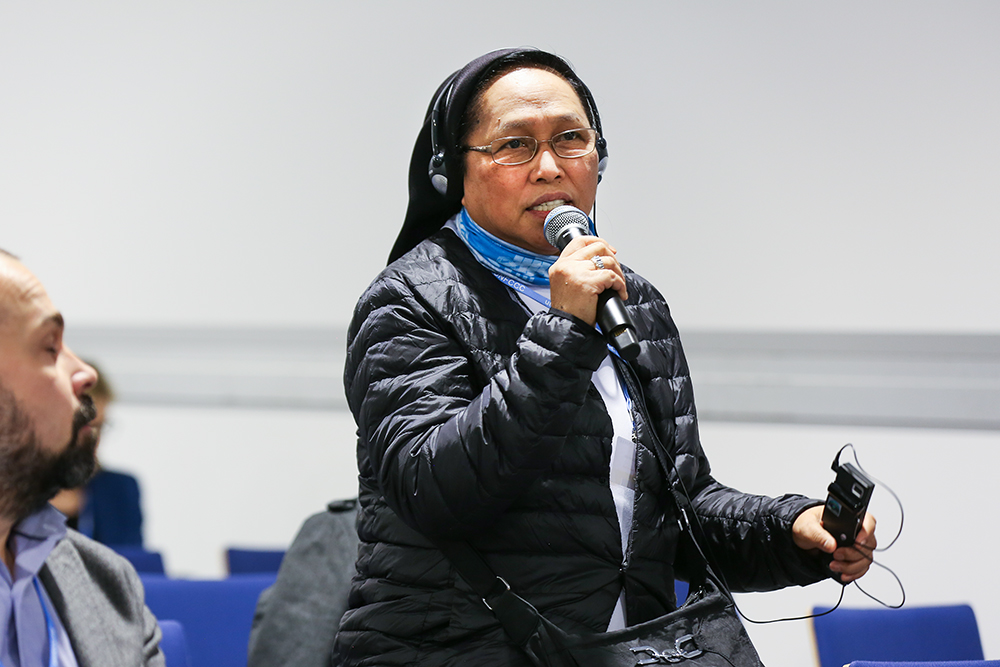
Decarbonizing Cities and Communities through Distributed Energy Resources and Transition
Presented by the Delta Electronics Foundation (DEF) and the Renewable Energy Institute (REI)
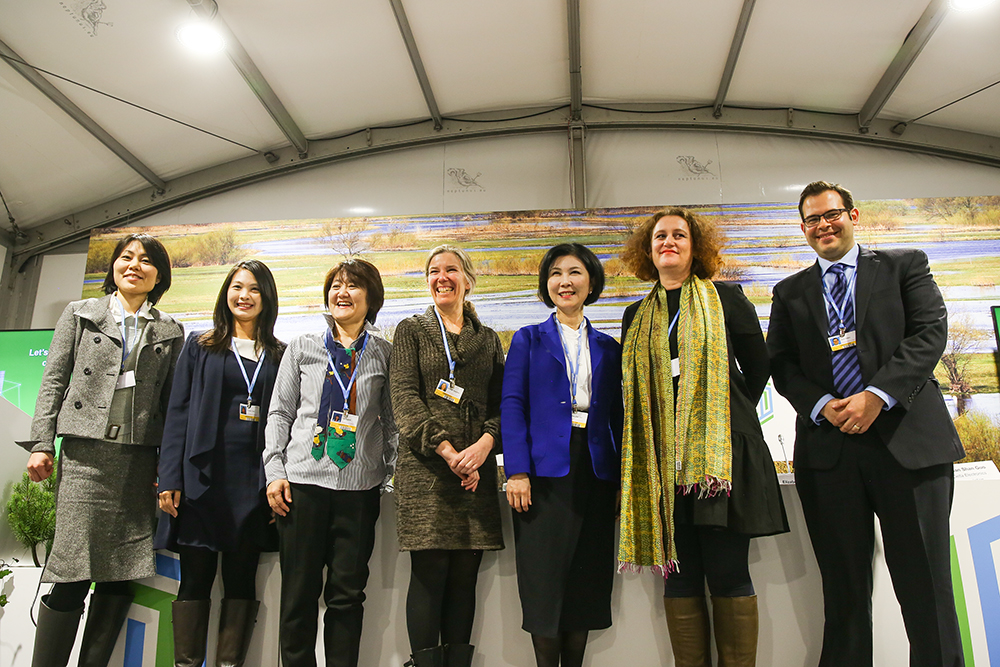
Posted by IISD Reporting Services on Friday, 7 December 2018
This event focused on the role of innovative energy efficiency and distributed energy resources to empower cities to lead the fight against climate change, and relevant urban policies and practices that facilitate decarbonization and resilience in the building and transport sectors.
Yvonne Chan, DEF, opened the event, and highlighted that cities matter because they are the biggest CO2 emitters and also are vulnerable to natural disasters. She outlined DEF’s efforts to: promote urban energy efficiency, especially in the building sector; increase private sector engagement through facilitating leadership in the Dow Jones Sustainability Index and Climate Disclosure Project Leadership Index; and participate in the Climate Group’s electric vehicle 100 (EV100) program.
Yuri Okubo, REI, noted the importance of improving, speeding up and scaling up energy efficiency, particularly in the building sector in Japan. She said 2018 was another year that Japanese citizens witnessed the adverse impacts of climate change and the importance of a decentralized energy system, with severe heat waves inside buildings and the Hokkaido earthquake that saw more than three million households suffer from a blackout, which was partially blamed on the centralized power generation system.
Noting the high share in cities’ CO2 emissions in the building and transport sectors, Moderator Yuko Nishida, REI, emphasized the role of local governments and urban policies to achieve energy efficiency, such as green building and energy ratings, emission trading schemes, green leasing and awareness rising programmes. She stressed that a pathway to net zero energy and carbon building and communities requires demand-side actions, including reducing energy consumption, introducing renewables, and supply side actions to move towards more renewables and a distributed energy system.
David Ribeiro, American Council for an Energy-Efficient Economy (ACEEE), described ACEEE’s 2017 City Energy Efficiency Scorecard, which shows energy efficiency efforts in large cities in the US, noting the differences on where cities stand. In the building sector, he said that home energy efficiency policies, such as ratings and labels, can help consumers by increasing transparency regarding costs associated with powering a home. In the transport sector, he stressed the importance of benchmarking that measures a building's energy use and transparency policies, which require that benchmarking results be made publicly available, and called for enhanced data transparency on energy use.
Emmanuelle Pinault, C40 Cities, introduced C40’s new Deadline 2020 initiative, which outlines the pace, scale and prioritization of action needed by C40 member cities over the next five years and beyond. She also highlighted the ambitious Net Zero Carbon Building Declaration, launched in September 2018, which pledges to enact regulations and/or planning policies to ensure new buildings operate at net zero carbon by 2030 and all buildings by 2050. She called for more cities and other actors to sign onto the Declaration.
Elizabeth Beardsley, U.S. Green Building Council, described the Leadership in Energy and Environment Decision (LEED) certification of green buildings, which is creating impacts in ensuring low-carbon emissions from buildings. She described LEED Zero, a net zero carbon programme launched to recognize buildings operating with net zero carbon emissions from energy consumption over a period of 12 months. She said the challenge is in shifting heating and cooling systems to renewables. She further presented the Arc platform that helps the building community improve sustainability technologies and adopt a more holistic approach to buildings.
Shan Shan Guo, Executive Director, DEF, stressed the importance of supplementing the traditional centralized power infrastructure with distributed energy resources (DER), which allows storage of energy. In the transport sector, she described a vehicle-to-grid charger that enables people to automatically use electricity from EV batteries for home appliances. She also discussed the restoration of the Namasia Ming Chuan School after a typhoon, noting that the restoration transformed it into a net zero carbon school. The campus, she reported, is highly energy efficient, and shelters thousands of people from indigenous communities during typhoons.
In the ensuing discussion, participants considered: the importance of stakeholder engagement in the building and transport sectors; education to fill knowledge gaps on energy sources; the role of city networks to catalyze urban climate actions; and the need to strengthen coordination between all levels and across sectors.
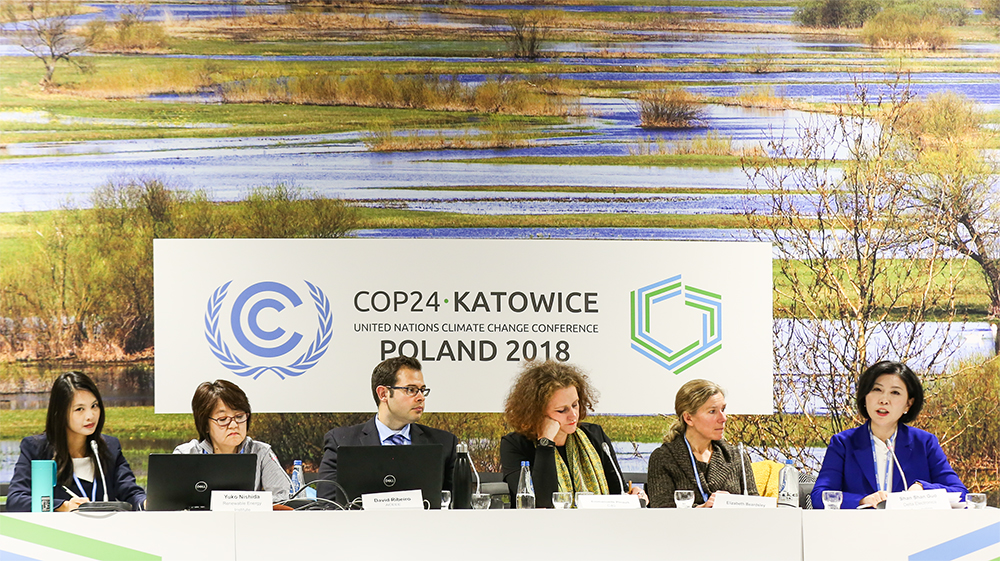
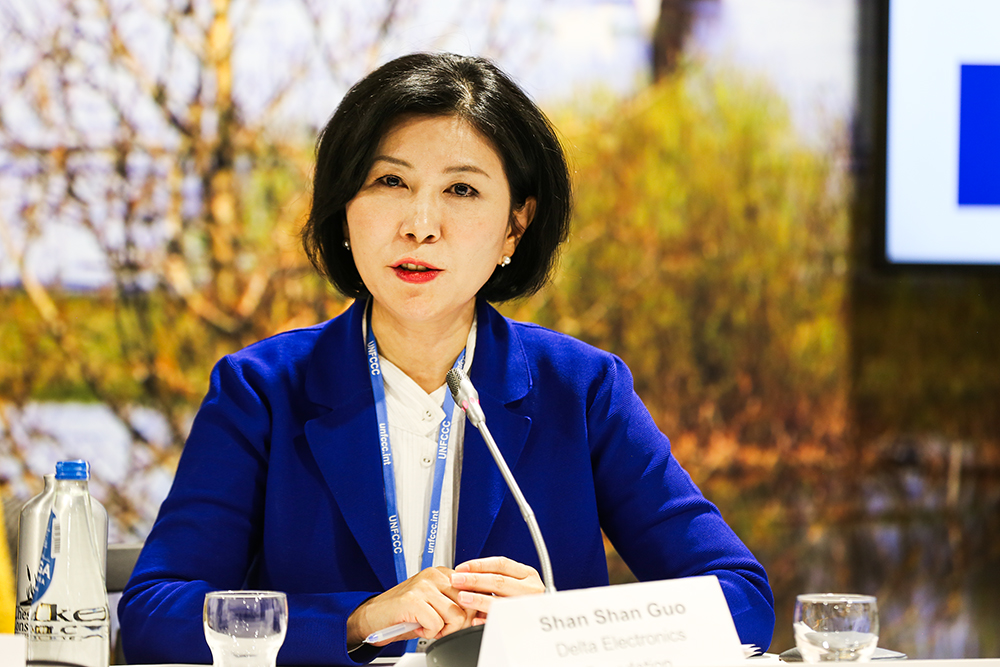
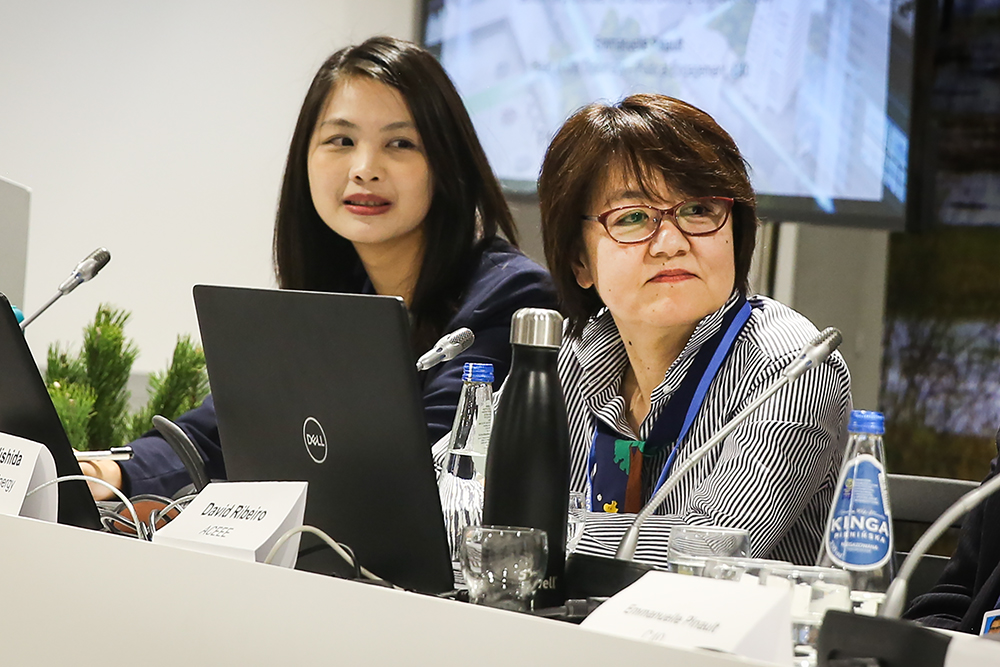
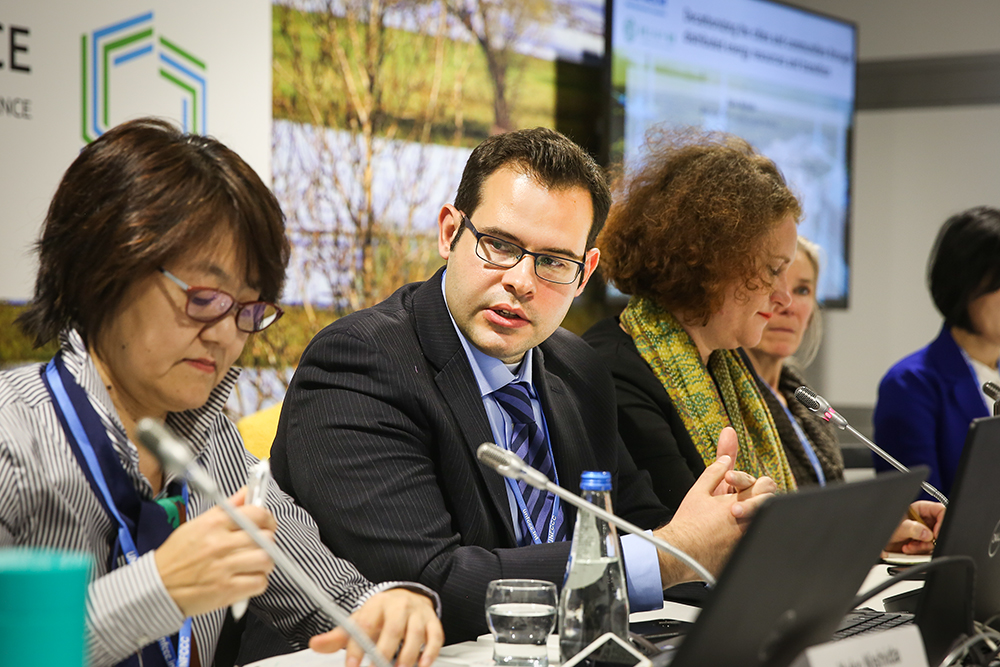
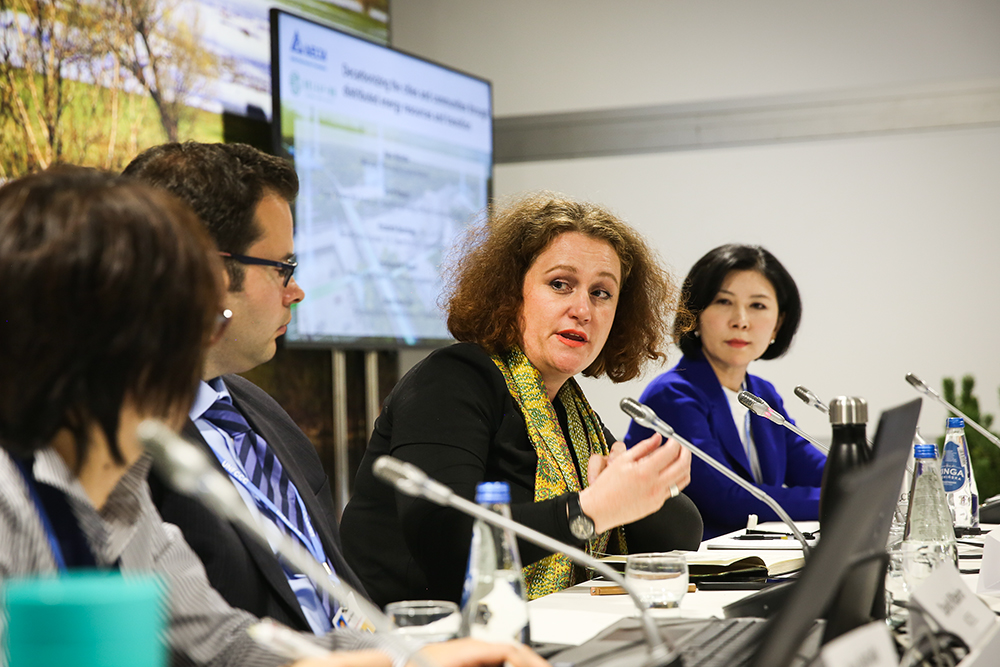
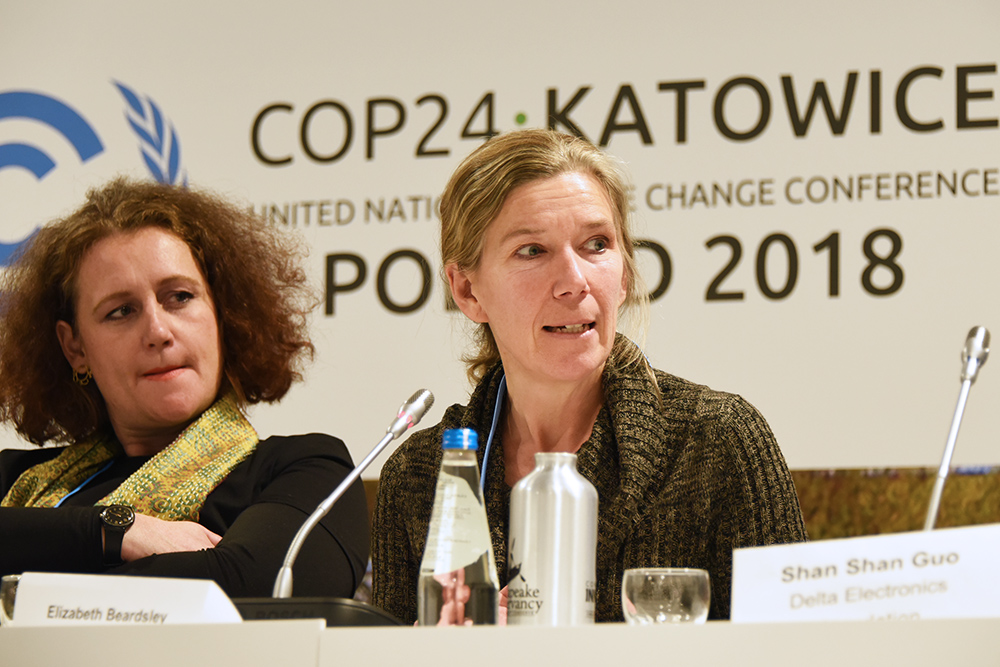
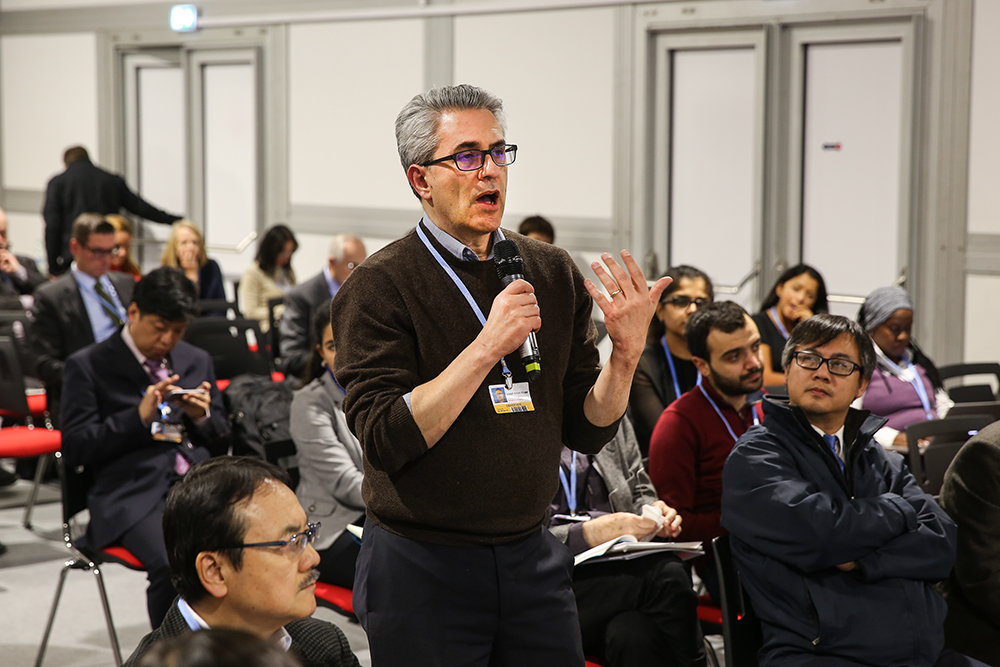
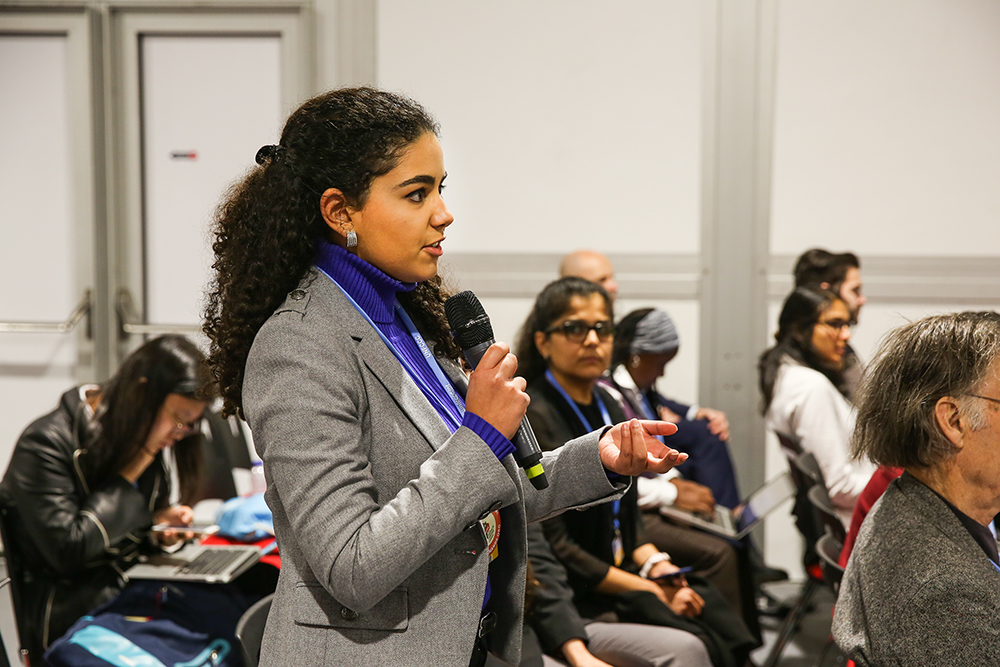
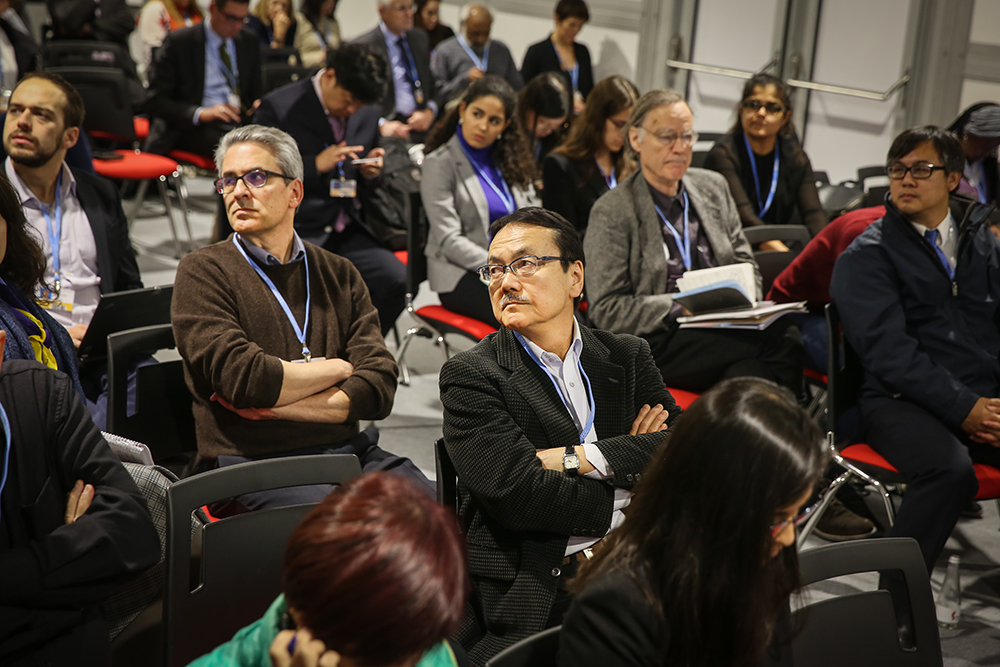
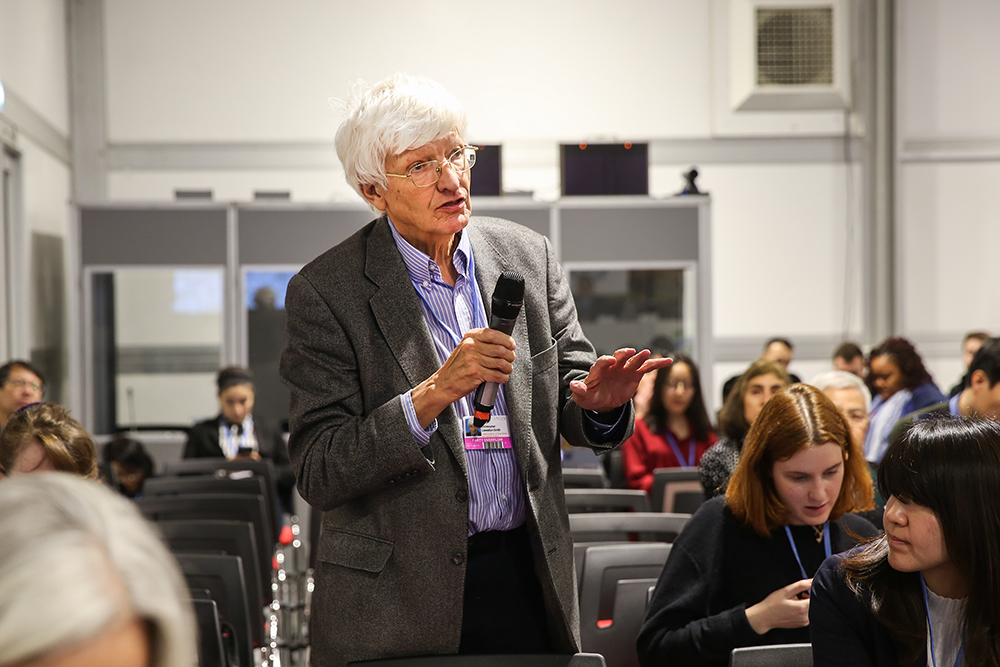
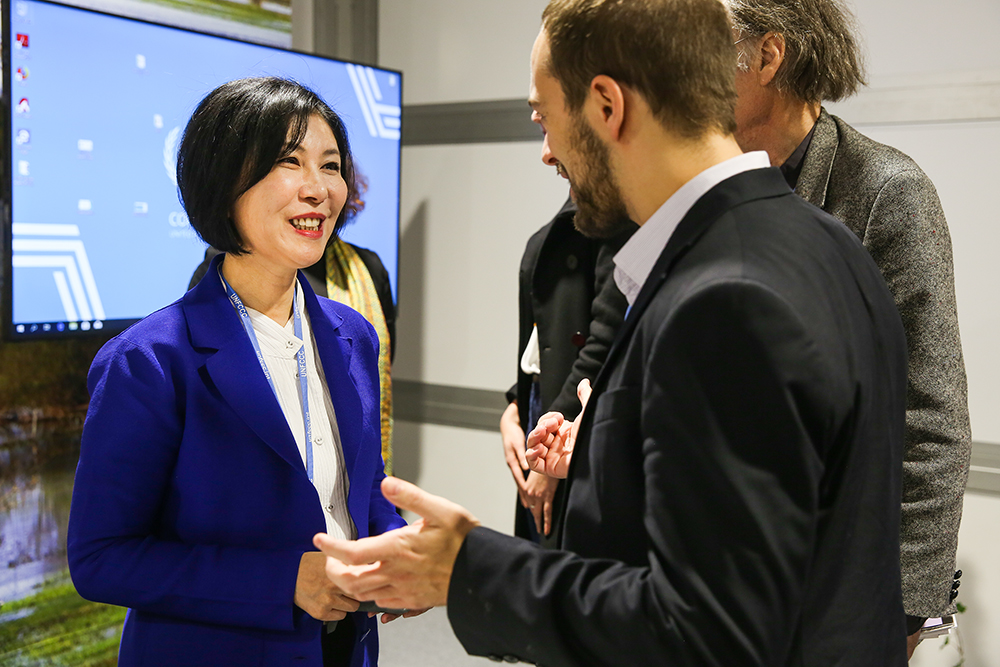
CONTACT
Yi Chieh Chan | Yvonne.Chan@Delta-Foundation.org.tw
Yuri Okubo | y.okubo@renewable-ei.org
MORE INFORMATION
Delta Electronics Booth

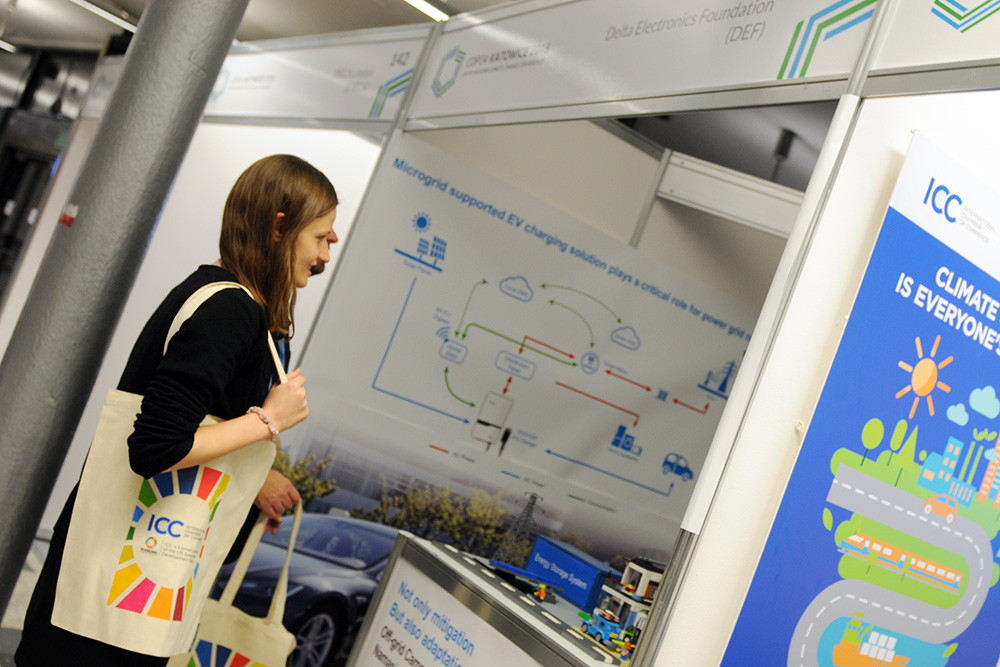
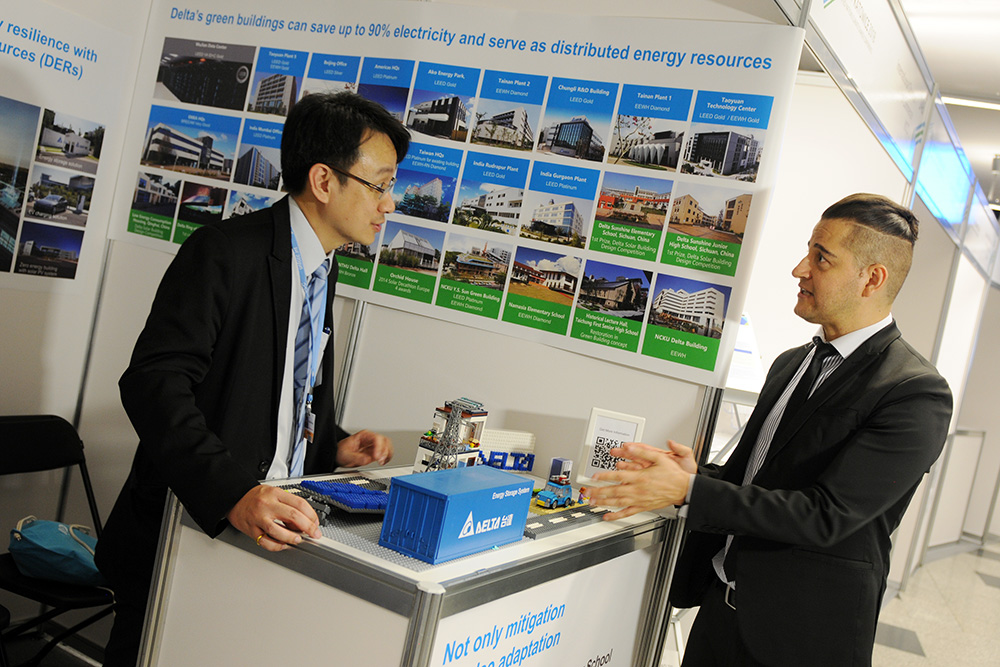


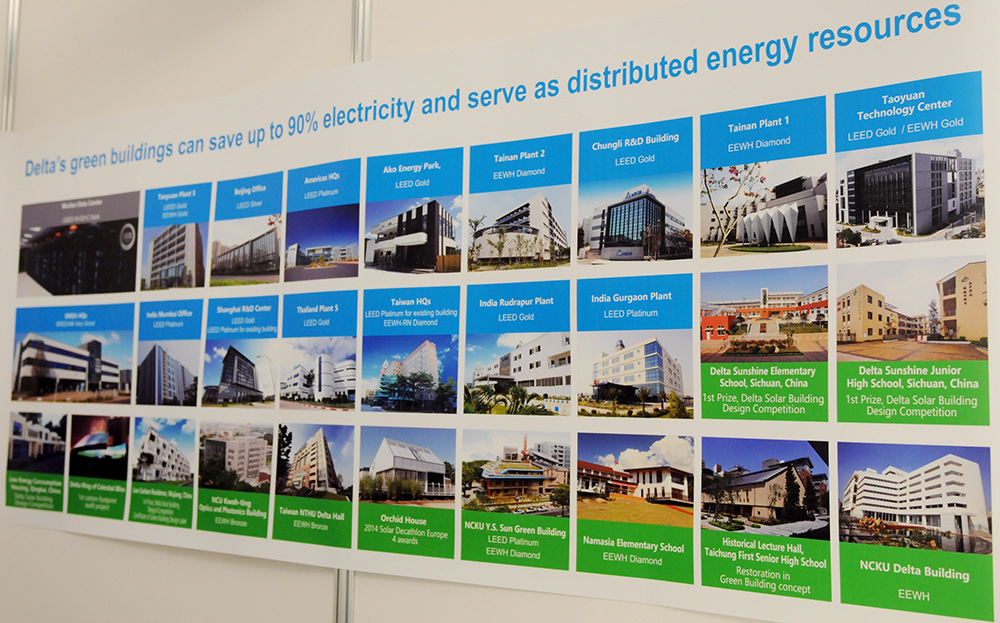
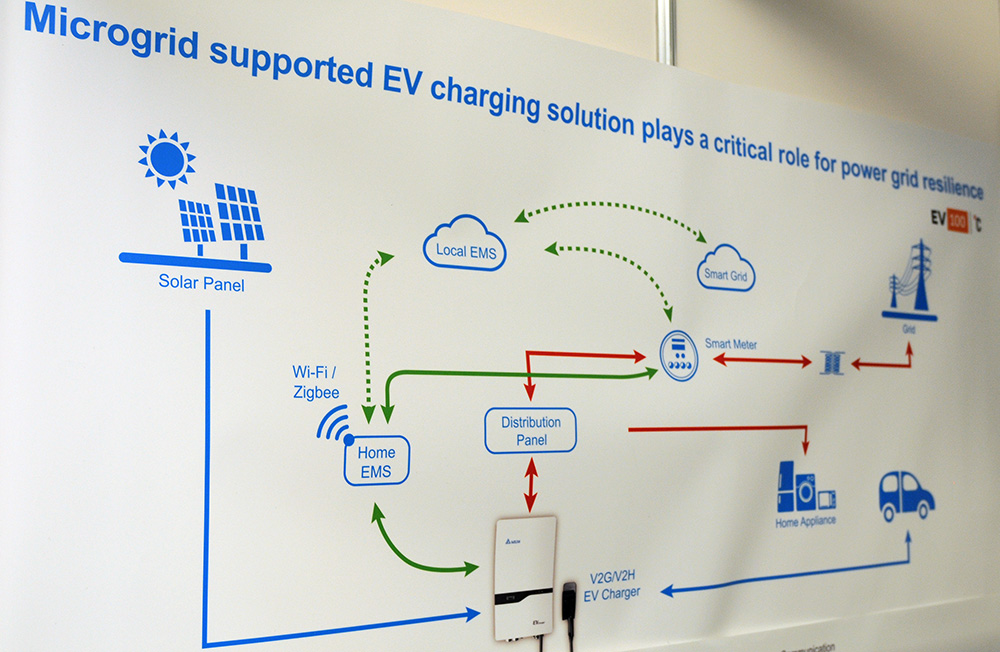
Around the Venue
